THE DEFINITIVE GUIDE FOR THE TREATMENT OF PCOS ( Polycystic ovarian syndrome )
PCOS (Polycystic ovarian syndrome) is a condition that affects 5-10% of females under the age of 35. PCOS is arising as the most common endocrinological disorder and is the primary cause of infertility in females of childbearing age now.
1 out of 5 young females in India suffers from polycystic ovaries and 70% of them stay unaware of it. PCOS affects the female physically as well as psychologically creating a syndrome that hampers the day-to-day life of a female. If PCOS is left untreated it can cause a variety of complications.
The hormonal imbalance caused by increased male hormones in the female creates a cluster of symptoms affecting the female health massively.
WHAT IS PCOS?
PCOD/PCOS is a combination of symptoms produced by an imbalance in the hormones (fall in female hormones and hike in male hormones) in the female. The imbalance of hormones causes irregularity in periods and sometimes even amenorrhoea (absence of menses). Further, there is no release of an egg (due to an increase in levels of male hormone/ androgens) and cysts are formed on the periphery of the ovaries. Due to high male hormones, there is thinning of hair on the scalp and hairiness on other body parts.
In PCOS insulin resistance may also be seen which does not let insulin act in the body and cause an increase in levels of glucose which may further stimulate the body to produce more insulin to combat high levels of glucose in the body. These high levels of insulin would cause ovaries to produce more androgens/ male hormones (testosterone). This would further exaggerate the symptoms in the female.
The patient usually presents with the issue with her menses/ periods or inability to conceive as the menstrual cycles are irregular and anovulatory which means there is no egg released by the ovaries for fertilization causing infertility.
Normally ovaries produce female sex hormones which help in the release of eggs and maintain normal functions. But ovaries also produce small amounts of male hormones also known as androgens which go out of balance in PCOD.
This imbalance would suppress ovulation, would produce acne, and increase hair growth on the face and body. This imbalance stops the maturation of eggs and takes the form of cysts on the periphery of ovaries thus called polycystic ovaries.
The main four features of PCOS are:
- no ovulation
- irregular periods or no periods
- acne
- hirsutism.
If the condition is not treated insulin-resistant diabetes can occur with high cholesterol and weight gain.
WHAT ARE THE TYPES OF PCOS?
There are 4 types of PCOS seen:
- INSULIN-RESISTANT PCOS: This is the most common type of PCOS seen. Insulin takes care of the blood glucose/sugar levels. In insulin-resistant PCOS the body stops responding to insulin and there is a rise in blood glucose levels which in turn causes more insulin production in the body.
This surge in insulin levels causes more production of androgens (male hormones). More than normal levels of male hormones in a female body interferes with all the female functions (ovulation, menses).
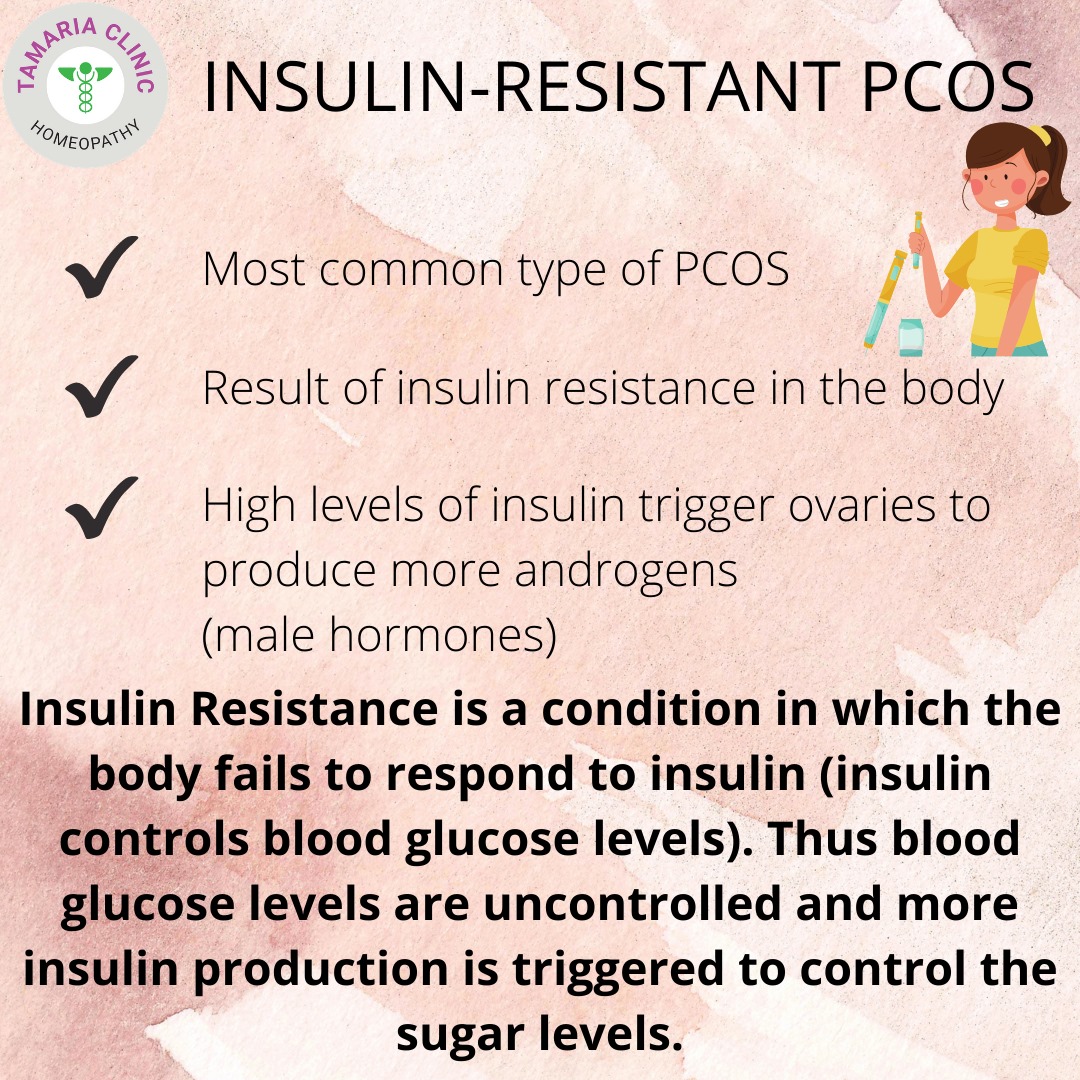
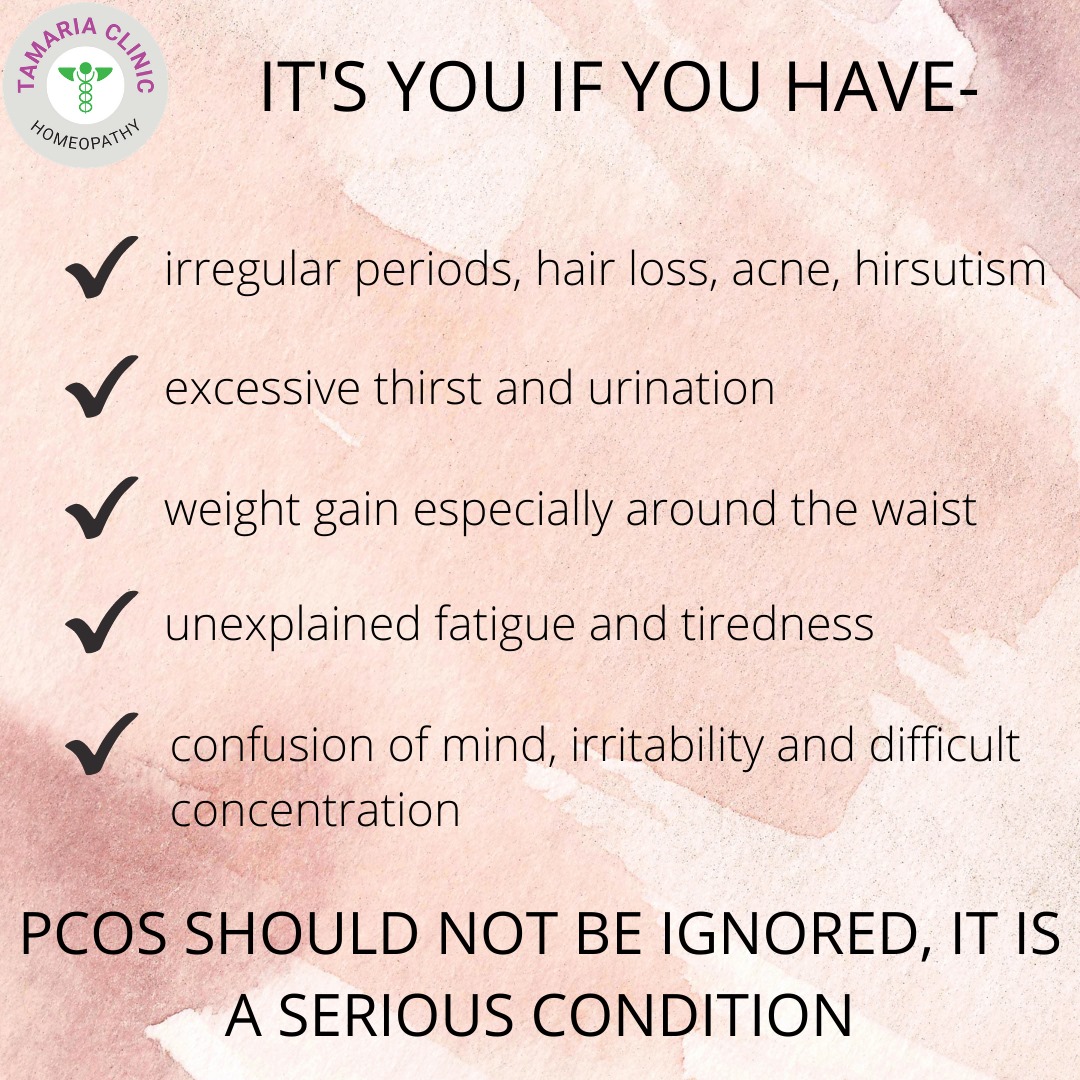
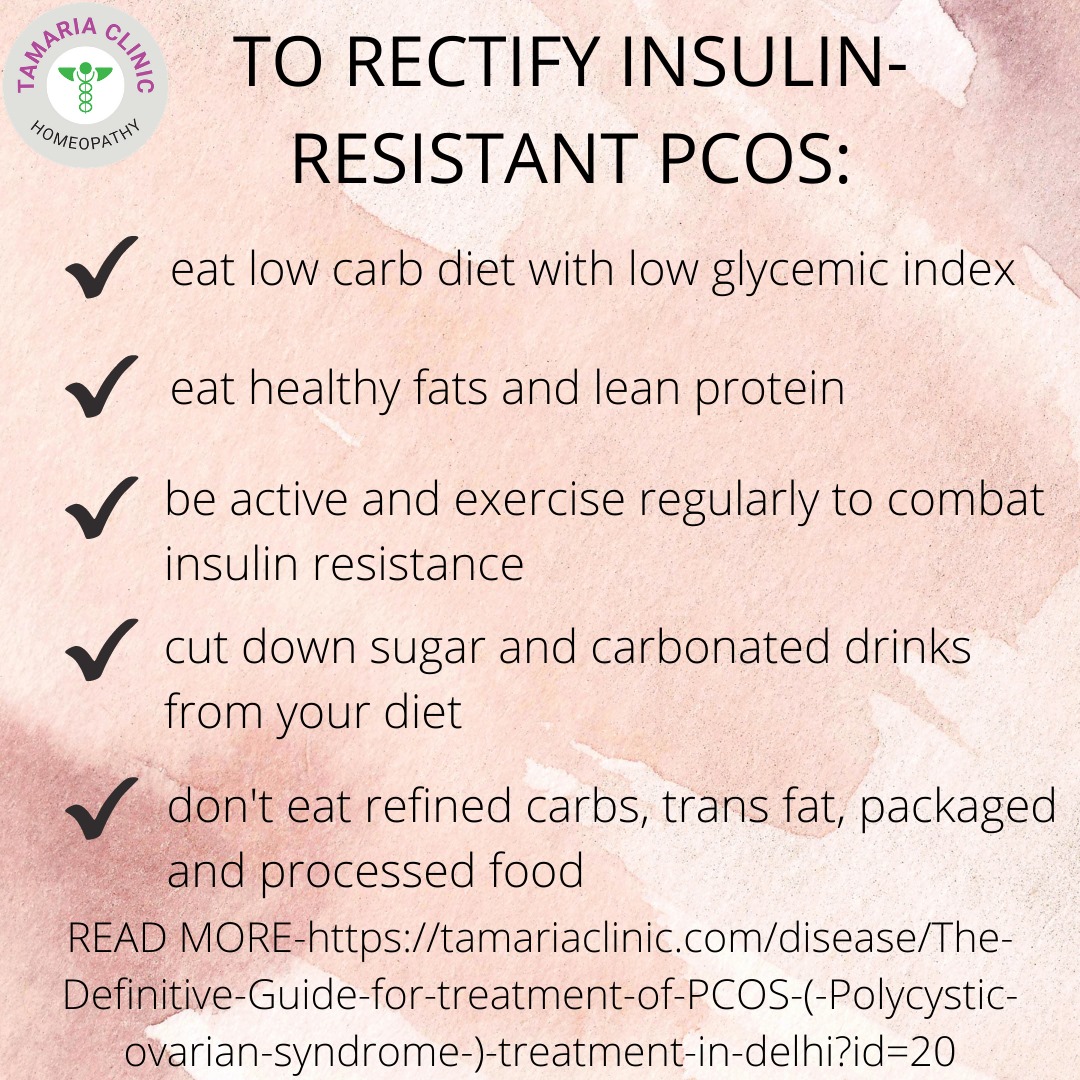
- POST-PILL PCOS: Some females experience PCOS-like symptoms after getting off oral contraceptive pills. Although this is temporary only, there is a hormonal imbalance seen for some time, and the patient is diagnosed with PCOS at that time.
The symptoms usually disappear within few months if supported with a good lifestyle, diet, and exercise.
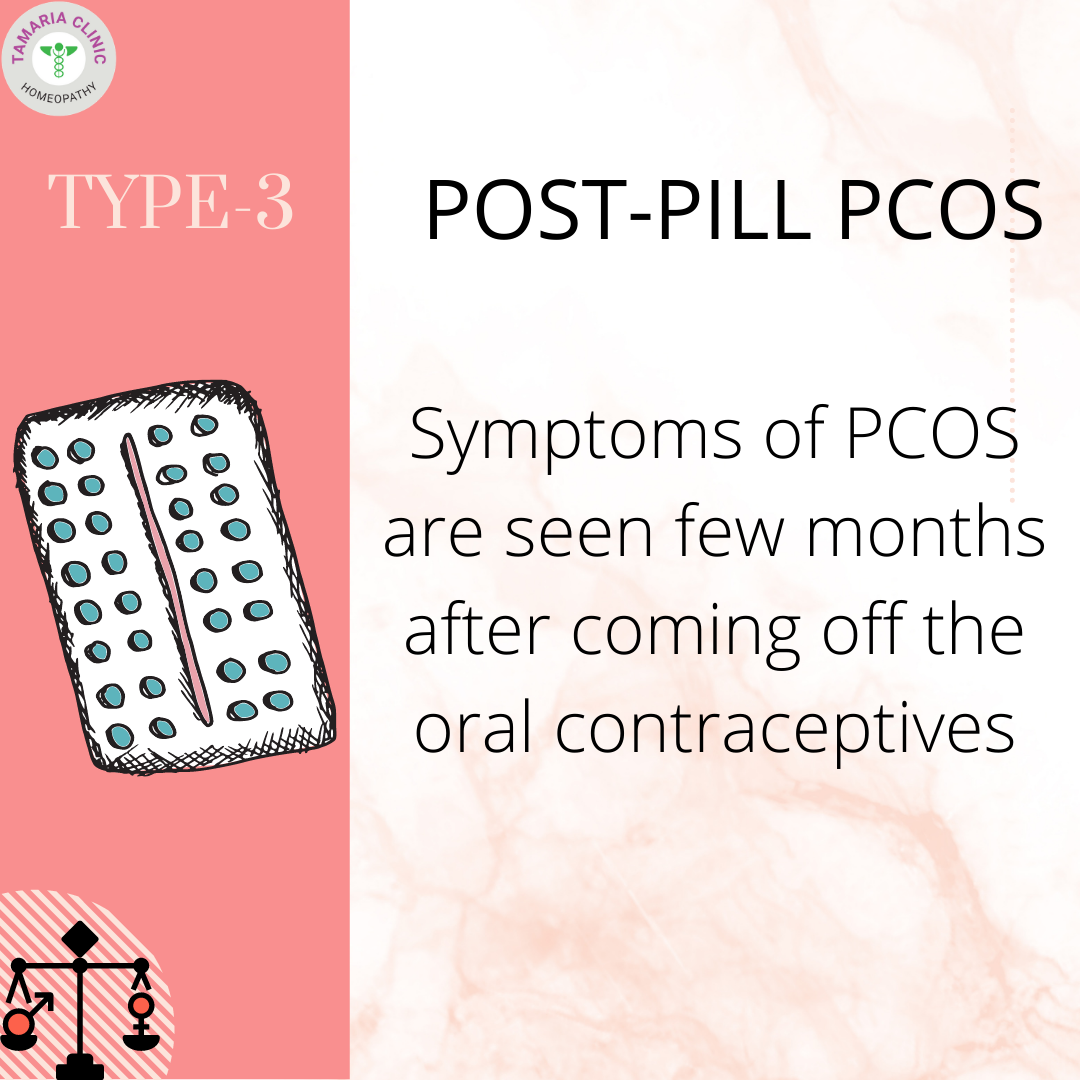
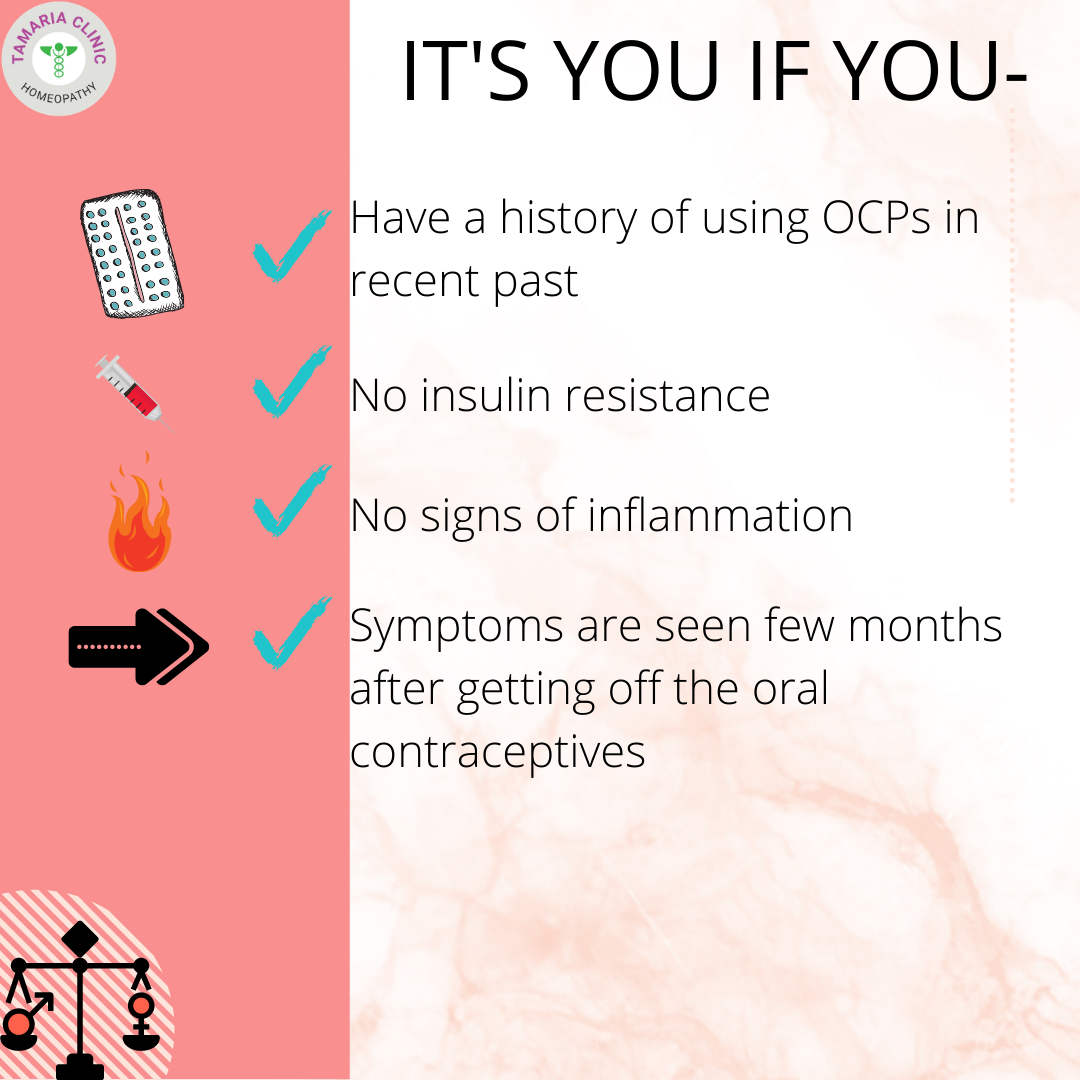
- INFLAMMATORY PCOS: In this type, there is autoimmune triggered inflammation, and ovaries are attacked leading to more production of androgens (male hormones) that can cause disturbed menses and ovulation.
In inflammatory PCOS there are other associated symptoms with inflammation like fatigue that is not relieved by sleep, joint pain, headaches, disturbed digestion, skin rashes, etc.
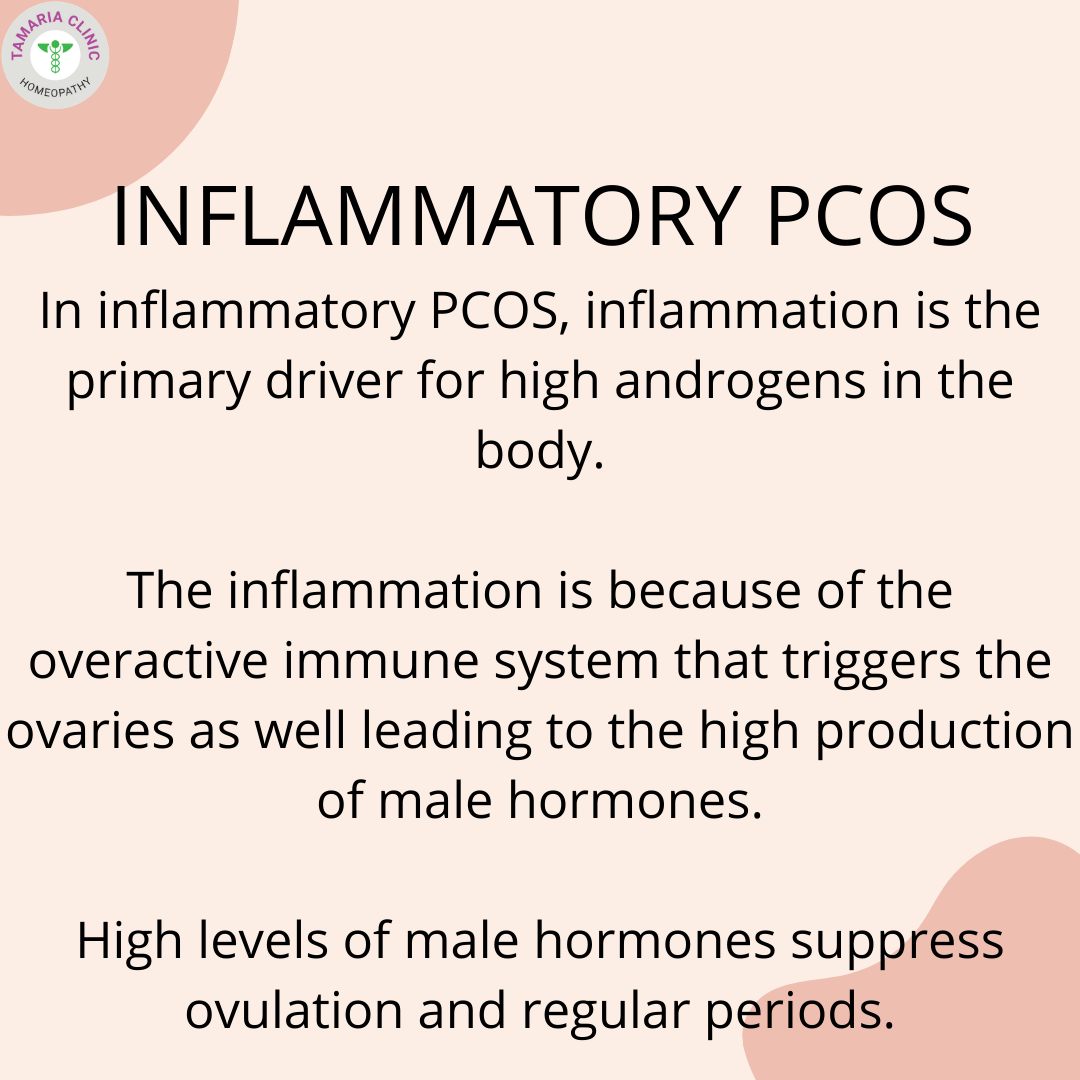
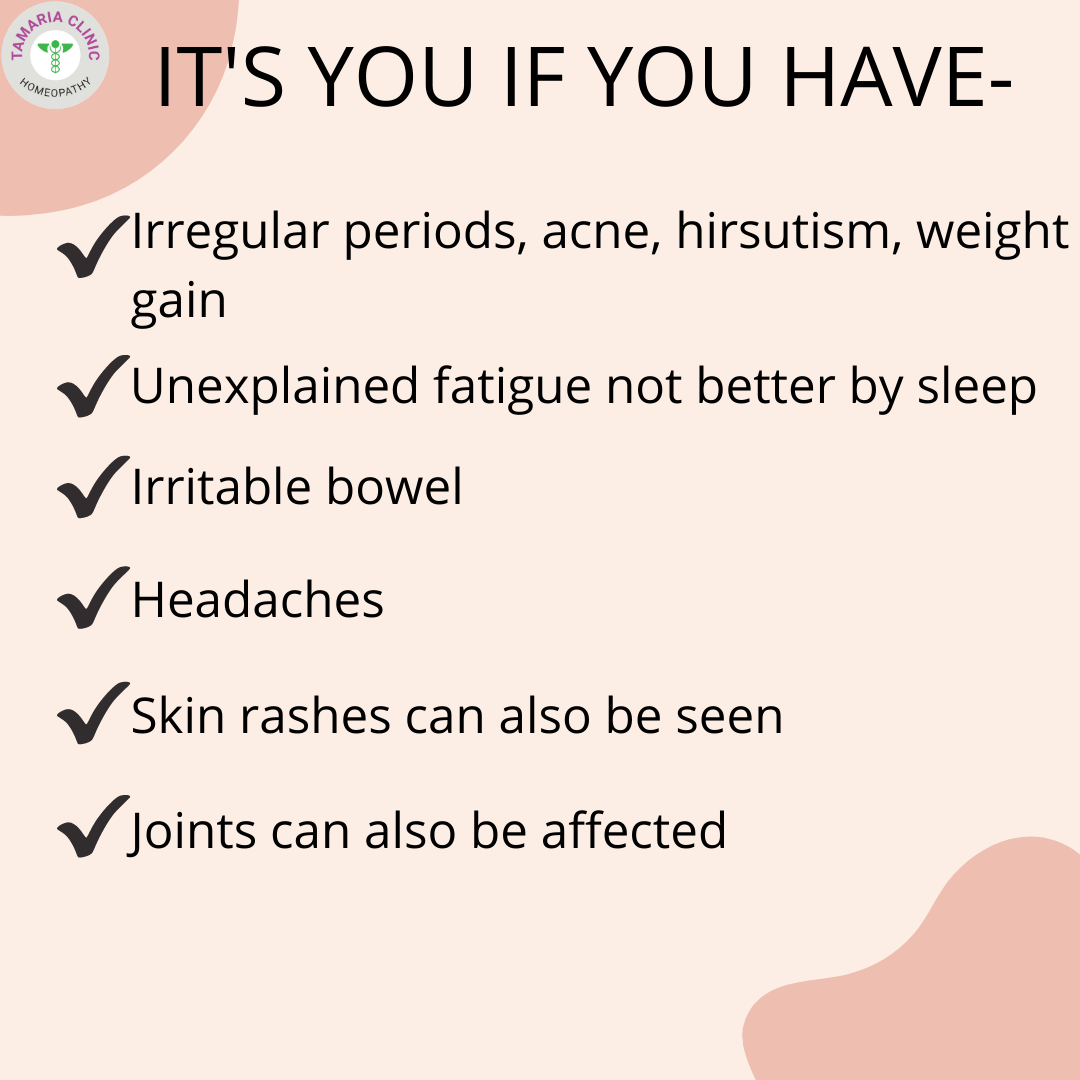
- ADRENAL PCOS: This type of PCOS is stress-driven rather than any other type which is because of insulin resistance, inflammation, or hormonal pills.
In this type, the female is either under a lot of stress or she is responding abnormally to stress. In such cases, there are high levels of DHEAS- an androgen produced by adrenal glands while levels of androgens produced by ovaries are normal.
The patient should focus more on good sleep, meditation, and removing factors that trigger stress in her.
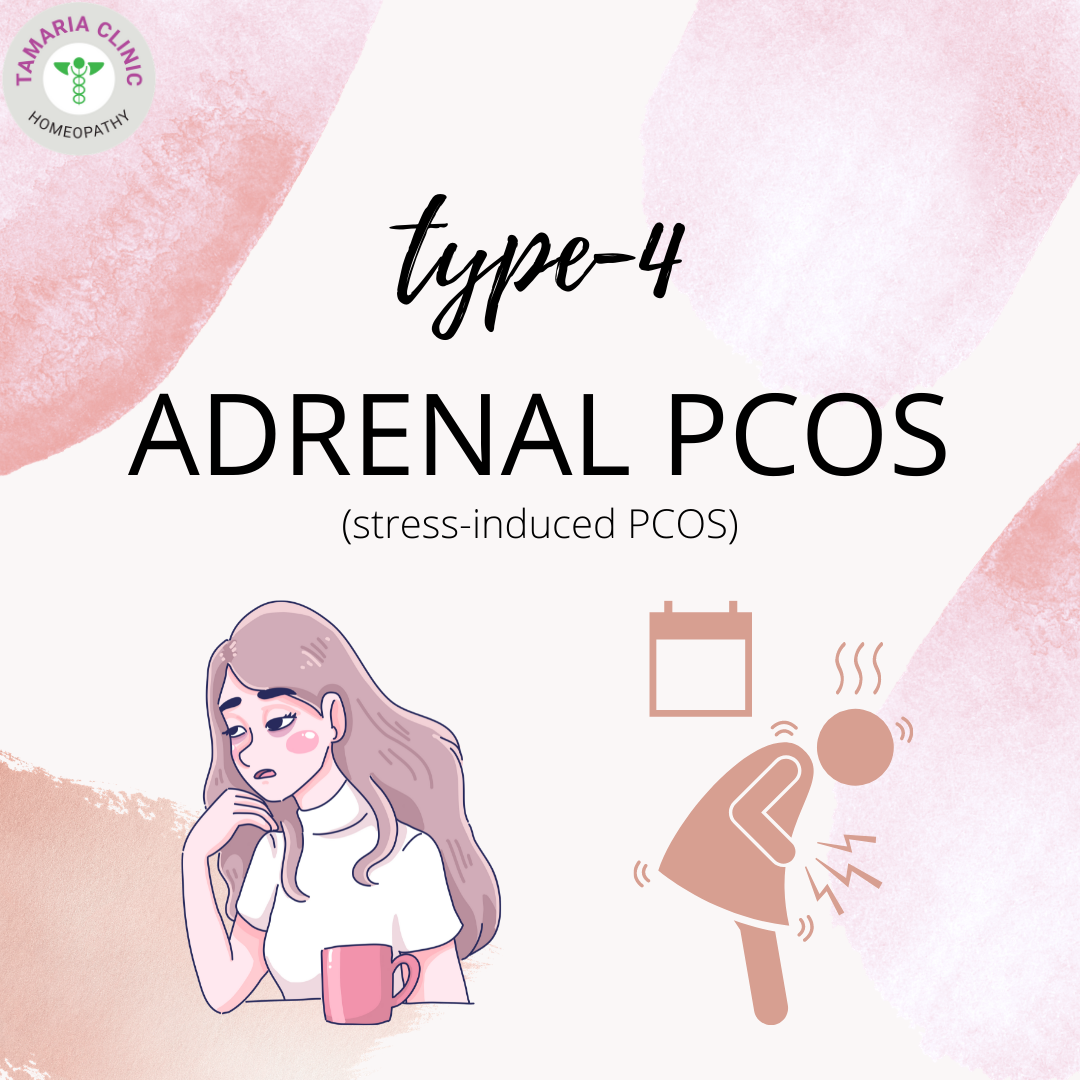
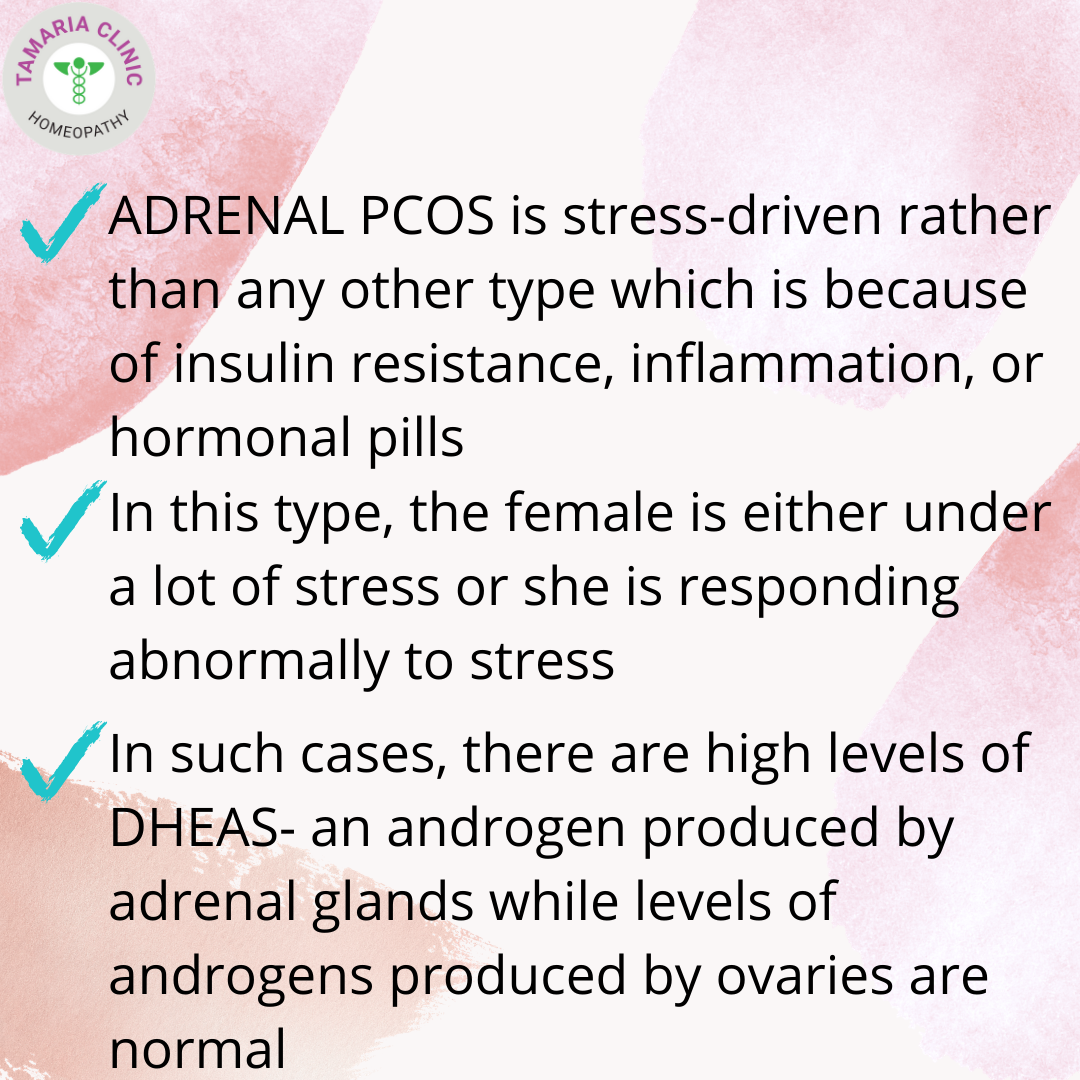
WHAT CAUSES PCOS?
The exact cause of PCOS is not known but PCOS runs in families thus genetic relation can be seen. Apart from this, there is insulin resistance that causes increased androgens and inflammatory factors as well that are responsible for triggering PCOS.
WHAT ARE THE SYMPTOMS OF PCOS?
Many females are not so vigilant about the condition and end up ignoring the symptoms for long until they have gained a lot of weight or face difficulty getting pregnant. Common symptoms of PCOS include:
- Irregular menstrual cycles
- Due to androgens, extra facial and body hair.
- Androgens also cause thinning of the hair of the scalp.
- Weightgain that is rigid to get rid of.
- Acne as male hormones can make the skin oilier.
- Mood swings, depression, low feeling, irritability, sadness, bouts of anger, etc.
- Difficulty in conceiving due to anovulatory cycles
- Headaches are also seen with hormonal imbalance.
HOW PCOS AFFECTS THE FEMALE BODY?
Higher than normal levels of androgens in the body of a female can affect her in many ways:
- INFERTILITY: PCOS has emerged as the primary cause of infertility. Due to disturbed ovulation and sometimes there is no egg formation as well. To get pregnant the female has to ovulate.
- METABOLIC SYMPTOMS: There is weight gain associated with PCOS and obesity can create many more issues in the body along with PCOS like high blood sugar, hypertension, low HDL (good cholesterol), high LDL (bad cholesterol). There could be associated sleep apnoea as well.
- ENDOMETRIAL CANCER: If the female doesn't ovulate for months then there is the thickening of the endometrial lining that could increase the risk of endometrial cancer.
- DEPRESSION: Due to symptoms associated with PCOS like infertility, acne, facial hair, mood swings, etc depression, and anxiety can be triggered.
HOW TO DIAGNOSE PCOS?
The diagnostic criteria for PCOS include at least 2 of the 3 criteria:
- Irregular or no menses/periods
- Blood tests or physical signs that are suggestive of high male hormones
- Polycystic ovaries as USG finding.
To diagnose a case of PCOS the presenting symptoms of the patients like disturbed menses, acne, facial hair, weight gain, etc; following investigations can be done:
- Blood sugar- fasting and PP, insulin
- Thyroid profile
- Ultrasonography of abdomen
- Serum testosterone, luteinising hormone, FSH, estrogen.
- Tests should be performed on the 3rd or 5th day of the periods
WHEN ONE SHOULD SEEK TREATMENT?
For a female, the first criteria sought to judge her health is her menstrual cycle. Any sort of abnormality with the menses should be consulted with a doctor.
A normal menstrual cycle is having periods every 28 days but it can vary from woman to woman. If a female sheds every 21 to 40 days then it is counted as a normal menstrual cycle.
See the doctor if:
- If you have missed your periods and you are not pregnant
- Any sort of change in your menstrual cycle over the period of time
- Unexplained weight gain
- Any symptoms of PCOS seen- facial hair, acne, etc.
- Trying to get pregnant but not able to conceive.
- If you start developing Diabetes symptoms- excessive thirst, frequent urination, blurred vision, etc.
WHAT ARE THE COMMON MEDICAL TREATMENTS AVAILABLE IN ALLOPATHY FOR PCOS?
While looking at the treatment for PCOS, in allopathy the main focus is on keeping the cycles on time and assuring monthly shedding of the endometrium by administering progestin daily.
BIRTH CONTROL PILLS are used for controlling the symptoms of PCOS. They tend to regulate the cycles, regulate ovulation and try to control the other symptoms as well like facial hair.
METFORMIN is given to deal with high glucose levels.
But all these medications are not helpful to rectify PCOS at all as there is just temporary regularization of menstrual cycles under the influence of hormonal pills but the root cause remains the same. Once the female stops taking those pills symptoms are back.
HOMEOPATHIC REMEDIES FOR PCOS
There are about a thousand medicines in homeopathy that can be used for the treatment of PCOS. In homeopathy, the approach to the disease is quite different. The medicine sought for every patient is based on individualization and a holistic approach is applied to treat a patient.
Homeopathy focuses on the root cause of an ailment and works towards the natural rectification of hormonal imbalance created in the body. Homeopathy seeks for timely ovulation and helps in the treatment of associated symptoms as well.
Below are few homeopathic remedies for PCOS:
Pulsatilla: Pulsatilla is one of the first remedies thought of, in affection, peculiar to women. Its essentially feminine disposition of gentleness timidity, mildness, docility excellent thing in a woman is most characteristic of the drug; even tearfulness, another feminine attribute, strongly points to Pulsatilla. Then, we have fickleness, indecision, and changeableness, which are certainly characteristic of Pulsatilla and of some women. Dark menses which are delayed and accompanied by this severe menstrual colic and the characteristic temperament will be the indications. The menses of Pulsatilla, besides being scanty, are quite apt to appear too late.
Caulophyllum: This is a valuable remedy in treating irregular periods, difficulty becoming pregnant or slow childbirth due to weak muscle tone of the uterus. The patient feels menstrual discomfort with heavy bleeding and drawing pains in the pelvic region, thighs, and legs. These patients complain of habitual abortion due to uterine debility.
Cimicifuga Racemosa: This remedy is intended for irregular and painful menses, with shooting pains that go down the hips and thighs, or cramps similar to labor pains that are felt in the pelvic area. Women become restless, fearful, and depressed before a menstrual period. These women are strong, talkative, depressed, they try to injure themselves, and have dreams of impending evil, with fear of riding in a closed carriage.
Lachesis: This remedy is suggested to women who are passionate, with a tremendous need for an outlet, both physically and mentally. The menstrual flow is irregular, heavy and brings relief of tension. These patients are very outspoken with strong feelings of suspicion or jealousy. They have an intolerance of restrictive clothing around the waist or neck.
Lycopodium: This is an outstanding remedy for delayed menses that follows a heavy flow lasting more days. These patients have a ravenous appetite with a strong craving for sweets. They complain of abdominal bloating and flatulence, and always have a worried look with a lack of confidence, though they may be bossy with their family.
Murex Purpurea: This remedy works amazingly in Irregular Menstruation with large clots and a feeling of protrusion. These patients feel very weak, are very conscious of a womb, and feel as if something is pressing on a sore spot in the pelvis. This sore feeling is worse on sitting, hence the patient always sits with legs tightly crossed. The least contact of parts causes violent sexual excitement in these women.
Secale cornutum: This is a useful remedy for Irregular menses in thin, shriveled-skinned women. Their whole body is pervaded by a sense of great heat and they have burning pains in the uterus. Menses is irregular, dark and at times, there is continuous oozing of watery blood until the next period. Their pregnancy concludes in a threatened abortion in the third month
Sepia: This remedy is best suited to women who feel weary and dragged-out, and are indifferent to their own family members. She feels taken for granted and overworked, becomes irritable and sarcastic if demands are made. Menses is delayed with a feeling that the pelvic floor is weak, or as if the uterus is sagging.
BUT HOMEOPATHIC MEDICINES SHOULD NEVER BE CONSUMED WITHOUT CONSULTING A QUALIFIED HOMEOPATH.
WHY HOMEOPATHY IS THE BEST OPTION FOR THE TREATMENT OF PCOS?
Homeopathy is very effective in the treatment of PCOS as it helps in getting regular ovulatory menstrual cycles without any hormone being given.
It helps to get rid of facial hair and treats infertility as well.
- NO HORMONES: Homeopathic medicines are prepared from various sources like plants, animals, minerals, energy sources and there is no place for hormones. Oral contraceptive pills contain hormones that are given to regularize the cycles which although regularize the menses till the time you take them and artificial hormones have side effects also. So homeopathy is a natural way to heal PCOD.
- NO GLYCOMET: Glycomet is given in cases where there is insulin resistance along with PCOD. Although in homeopathy single best similar medicine is chosen which would cure the patient completely and permanently.
- PERMANENT CURE: Homeopathic medicines always give permanent treatment to the patient. Once the treatment is complete the disease doesn’t recur and the menses get regular and all other symptoms of PCOD also disappear.
- NO SIDE-EFFECTS: Homeopathic medicines are natural and don’t have side effects. Since the dose is minimum and single medicine is given it sensitize the body just enough to cure the disease and leave no side-effect.
- NATURAL REGULARIZATION OF CYCLES: Homeopathic medicines help the body to act over the disease. It is the body that takes the charge after administration of the homeopathic medicine and heals itself. Thus the cycles become regular permanently in a natural way.
HOMEOPATHY IS A PROVEN METHOD FOR THE TREATMENT OF PCOS AS THERE ARE NO ARTIFICIAL HORMONES ADMINISTERED AS THEY HAVE SIDE EFFECTS OF THEIR OWN. THERE IS A NATURAL APPROACH TO RECTIFYING THE HORMONAL IMBALANCE.
MANAGEMENT OF PCOS
PCOS is a lifestyle disorder that means only medicines are not going to help get rid of it. To get a permanent cure in a case, along with homeopathy a female has to make the following changes in her life that must focus on weight loss, diet, and exercise.
HOW DOES DIET AFFECT A FEMALE SUFFERING FROM PCOS?
Women suffering from PCOS have insulin resistance which means the insulin produced by the body normally is not able to act and control the glucose levels in the body thus creating imbalance and surge in the blood sugar levels. This surge in blood sugar levels in turn triggers the pancreas to secrete more insulin.
Insulin surge triggers the ovaries and more male hormones or androgens are produced. This can't be controlled solely by medicines and diet has a vital role as what we eat is ultimately converted into glucose.
Apart from that diet also has something to do with weight. Obesity in PCOS just makes the situation worse. It further causes insulin resistance. Thus to control weight also and losing as well, the diet has to be monitored as obesity is associated with other complications as well.
DIET FOR PCOS
- Insulin resistance is seen in many women with PCOS and thus food items high in refined carbohydrates, starchy, sugary foods would increase insulin resistance and would make weight loss much more difficult.
- A high fiber diet should be taken which would slow down digestion and would help combat insulin resistance. Food items high in fiber are- broccoli, cauliflower, sprouts, lettuce, bell peppers, pumpkin, sweet potato, almonds, and berries.
- Lean protein should be taken which is filling and would help in keeping weight under control. Tofu, chicken, and fish are good sources of proteins.
- Tomatoes, spinach, almonds, walnuts, olive oil, strawberries are useful anti-inflammatory food items.
- Processed food items and red meat are inflammatory and should not be taken.
- Avoid white bread, muffins, refined sugar, maida.
- Limit dairy products.
- Limit soy products.
- Red meat should also be avoided.
- Eat wholegrain food items instead of processed or refined food.
- Incorporate legumes into the diet.
FOODS TO BE ADDED TO PCOS DIET
- HIGH FIBRE FOODS: High fiber foods help in slowing down digestion thus doesn't cause a sudden hike in blood glucose levels. Options for high fiber foods are:
- Broccoli
- Sweet potato
- Pumpkin
- Beans
- Lentils
- Fruits
- LEAN PROTEIN: Lean proteins are filling and thus can keep you full for long. Options are:
- Fish
- Chicken
- Tofu
- ANTI-INFLAMMATORY FOODS: Inflammatory foods such as refined grains can cause inflammation in the ovaries that further increases the levels of androgens. So one should avoid such foods and opt for anti-inflammatory food items like:
- Turmeric
- Garlic
- Tomatoes
- Almonds
- Walnuts
- Strawberries
- Salmon
- Olive oil
FOODS TO LIMIT OR AVOID IN PCOS
- REFINED CARBS: cause inflammation and can further worsen insulin resistance thus should be avoided in the diet. Example are:
- White bread
- Muffins
- Pastries
- Refined flour (maida)
- Pasta noodles
- SUGARY SNACKS AND DRINKS: Sugar causes inflammation and glucose surge in the body. Items high in sugar are:
- Carbonated drinks
- Anything having refined sugar
3.INFLAMMATORY FOODS: Inflammatory food items trigger inflammation in the ovaries thus increasing more levels of male hormones. Food items to be avoided are:
- Red meat
- Processed food
- Packaged food
- Refined grains
- Fries
- AVOID TRANS FAT
ROLE OF EXERCISE IN PCOS
A proactive lifestyle is key to get rid of PCOS as it responds positively to it. Exercise helps in boosting up the metabolism that helps in reducing weight. Exercise also helps in regulating the hormones thus regulating menses and ovulation.
Exercises should be focused on lowering the BMI and managing the weight.
Following are the types of exercises you can consider for PCOS:
- HIIT WORKOUT: High-intensity interval training focuses on high-intensity workout circuits with time intervals. Exercises like burpees, mountain climbers, jumping jack, butt kick, etc are involved in this. Sample HIIT workout for 20 minutes is given below:
50 seconds burpees 10 seconds rest
50 seconds jumping jack 10 seconds rest
50 seconds side planks 10 seconds rest
50 seconds other side planks 10 seconds rest
50 seconds push-ups 10 seconds rest
50 seconds mountain climbers 10 seconds rest
50 seconds high knees 10 seconds rest
50 seconds side lunges 10 seconds rest
50 seconds squats 10 seconds rest
50 seconds jumping lunges 10 seconds rest
Rest for 1 minute and repeat the circuit again
- CARDIO WORKOUT: These workouts pump the heart more and increase the heart rate. This includes running, cycling, skipping rope, etc
- STRENGTH TRAINING: Strength training involves resistance bands, weights, and using your own weight to build muscles and cut down the fat deposited in the body. These workouts have the benefit that calories are consumed even in resting time as muscles would increase combustion of oxygen and approx 60 calories are required to maintain one muscle. Sample workout is as below:
10 reps- Dumbbell row
10 reps- Dumbbell flyes
REPEAT 2 SETS
10 reps- Renegade rows
10 reps- Upright rows
REPEAT 2 SETS
10 reps- Dumbell incline butterfly
10 reps- Incline pushups
REPEAT 2 SETS
- MIND-BODY EXERCISES: Women with PCOS react abruptly to stress and sometimes there is more stress in their daily life which triggers and aggravates the situation. Yoga and Pilates help a lot in releasing stress. Few yoga poses are:
- Surya namaskar
- Bhujangasan
- Makarasan
- Dhanurasan
- Padmasan
- Pranayams - Anuloum vilom, Kalapbhati
- Shavasan
TO GET RID OF STRESS IN PCOS:
- Do meditation
- Take a walk
- Spend time in nature
- Talk to someone about your issues
- Meditation
- See the sun
- Limit sugar
- Remove all the triggers that cause stress.
12 TIPS TO MANAGE PCOS EFFICIENTLY
- Regular physical exercise is essential to get rid of the rigid weight gain of PCOS.
- Being physically active would also help to fight insulin resistance thus would help in the management of symptoms of PCOS.
- Meditation and yoga would help the mind and body to relax as PCOS may cause stress. Thus meditation and yoga would help in keeping the physical and mental stress low.
- To fight insulin resistance high fiber diet should be taken as it is going to slow down the digestion and thus sugar levels would not rise suddenly. Food items like broccoli, cauliflower, sprouts, lettuce, arugula leaves, bell peppers, beans, berries, zucchini, almonds, sweet potato, pulses, etc are rich in fibers and are good for the patient with PCOS.
- Another dietary change that one should do is to take light food which is filling and don’t give many calories such as tofu, chicken, fish, etc
- Food items that have anti-inflammatory properties (tomatoes, spinach, strawberries, blueberries, olive oil, etc) would also help the patient with PCOS.
- Refined carbohydrates should be avoided as they are going to exaggerate the symptoms by aggravating insulin resistance. Food items like white bread, muffins, potatoes, white flour, etc should be avoided.
- Refined sugar should be avoided.
- Eat a large breakfast and cut down your dinner to a small amount.
- A low carbohydrate diet is advisable as it would help in losing weight and would manage the androgen levels also.
- Drink plenty of water.
- Keep the intake of dairy products low.
DO'S AND DON'TS FOR PCOS
DO'S
- Do regular physical exercise.
- Eat a healthy and nutritious diet.
- Maintain a menstrual calendar.
- Do meditation and yoga.
- Drink plenty of water.
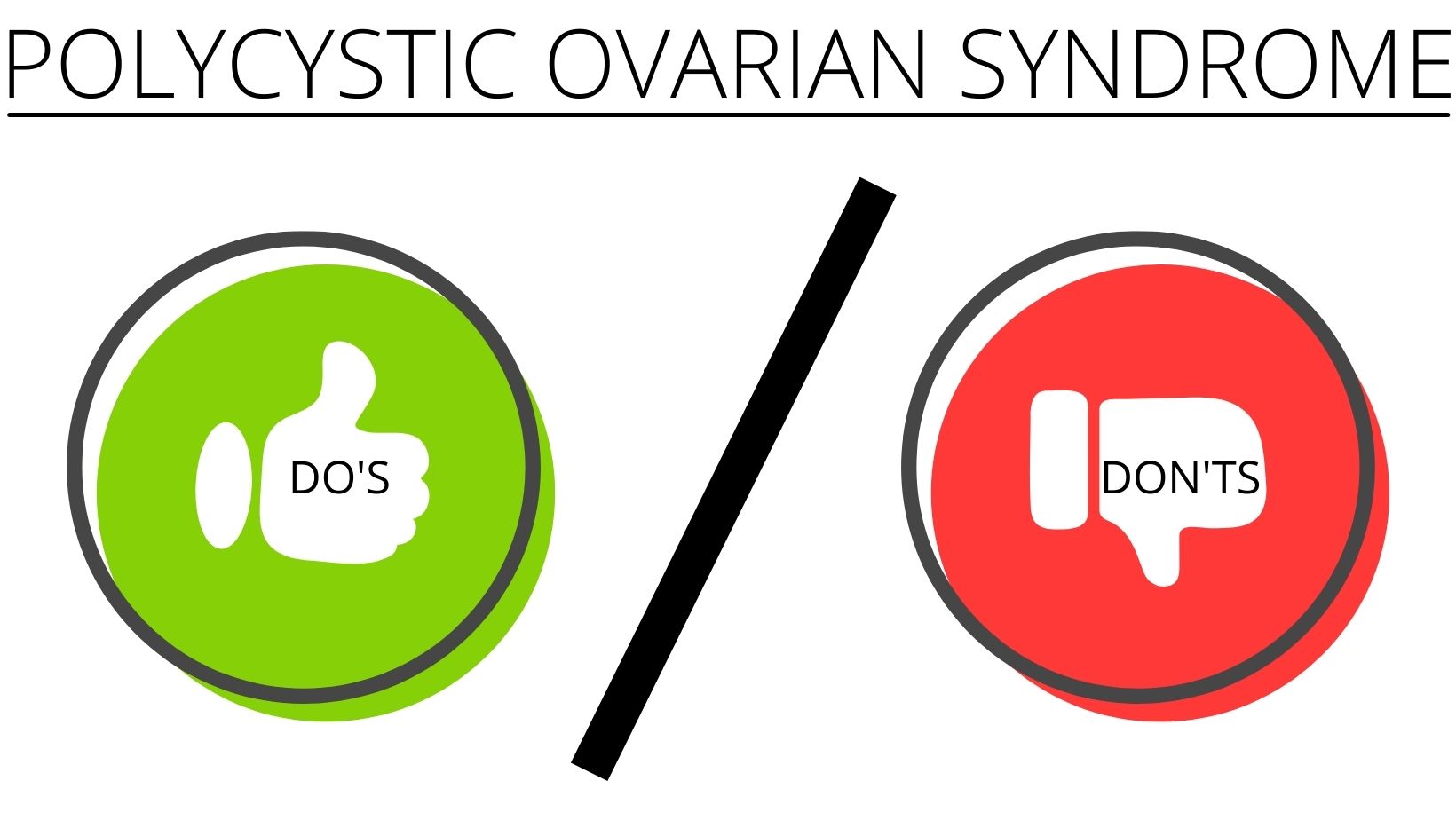 DON'TS
DON'TS
- Don’t smoke
- Don’t take alcohol.
- Don’t eat unhealthy food.
- Don’t follow an unhealthy lifestyle.
5 MYTHS ABOUT PCOS
MYTH 1. CYSTS IN OVARIES HAVE TO BE THERE IN PCOS
PCOS is a syndrome and diagnostic criteria include at least 2 out of 3 symptoms- irregular periods, blood tests suggesting high androgens and polycystic ovaries so its not necessary to have cysts in ovaries in every case of PCOS
MYTH 2. PCOS AFFECTS OVERWEIGHT FEMALES ONLY
PCOS is commonly associated with being overweight but it is not necessary that it can affect overweight females only.
MYTH 3. YOU CAN'T GET PREGNANT IF YOU HAVE PCOS
Although PCOS is arising as a primary cause of infertility it doesn't mean you can't get pregnant with PCOS. Some females get pregnant and never get to know about themselves suffering from PCOS. But this doesn't mean you should sit at home with the condition and wait. you should seek help as with time symptoms start getting more worse. Seek the help of the doctor, take homeopathy and modify your life and get over with the disease. You can get pregnant with the correct treatment.
MYTH 4. PCOS IS A RARE CONDITION
PCOS is not a rare condition as it is affecting 1 out of 5 young females now. It is a leading cause of infertility in females and is affecting many more in many different ways. 70% of young females remain undiagnosed with the condition.
MYTH 5. IF YOU LOSE WEIGHT THEN YOU CAN GET RID OF PCOS
PCOS can be managed by losing weight by can't be cured by it. You certainly need medication to get rid of it.
11 TIPS TO LOSE WEIGHT IN PCOS
- EAT A HIGH FIBRE DIET: Diet rich in fibers keeps you full for a long time and you would not indulge yourself in food items bad for your condition. They also help in losing weight in PCOS. Options for high fiber foods are:
- Broccoli
- Sweet potato
- Pumpkin
- Beans
- Lentils
- Fruits
- REDUCE CARBS IN YOUR DIET: Insulin resistance creates a lot of trouble in PCOS. Thus carbs being high in glycemic index release much glucose at once in the bloodstream should be limited in the diet.
- EAT LEAN PROTEIN: Lean proteins like fish, tofu should be added to the diet as they help in keeping you full and are good for weight loss.
- DON'T DO CRASH DIETING: Starving yourself or doing crash dieting is not going to help in PCOS as eating right is mandatory for PCOS management.
- AVOID INFLAMMATORY FOOD ITEM: Refined grains, refined flour, white bread, etc would cause inflammation in the body thus increasing more androgens in the body and should be avoided.
- AVOID SUGAR: Sugar is bad for PCOS. Carbonated drinks, sweets, pastries, etc should not be consumed as they would cause inflammation in the body and also due to high-calorie count would also trouble with insulin resistance.
- REPLACE PROCESSED AND PACKAGED FOOD WITH FRESH FOOD ITEMS: Packaged food items or processed food items would not help with weight loss and would also increase inflammation in the body.
- EXERCISE REGULARLY: PCOS responds quite nicely to a proactive lifestyle. Thus Keep your exercise routine fixed and exercise 5 days a week. Exercise also helps in releasing stress and keeps the body light.
- MEDITATION AND YOGA: Meditation and yoga helps in weight loss and maintaining a good state of mind as well. Stress can be managed by meditation.
- MANAGE YOUR STRESS: Stress can induce PCOS and it is seen that women react badly to stress which can further complicate the situation. So seek ways to help yourself with managing the stress.
- GET ENOUGH SLEEP: Good sleep is key to manage the hormonal balance in the body. Timely sleep with 7-8 hours of duration is ideal to keep PCOS under check. Don't do night watching and sleep on time to get uninterrupted sleep.
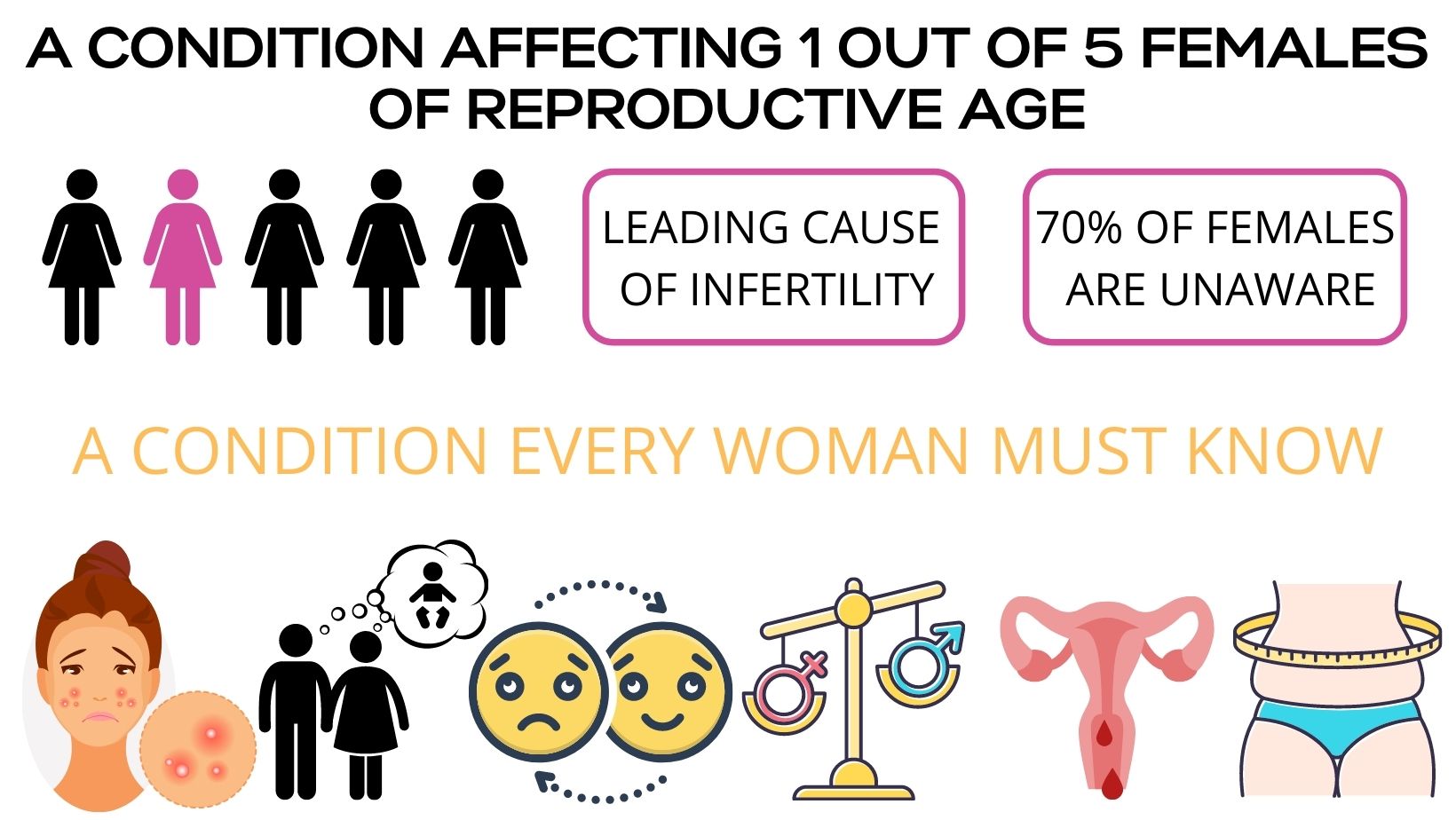

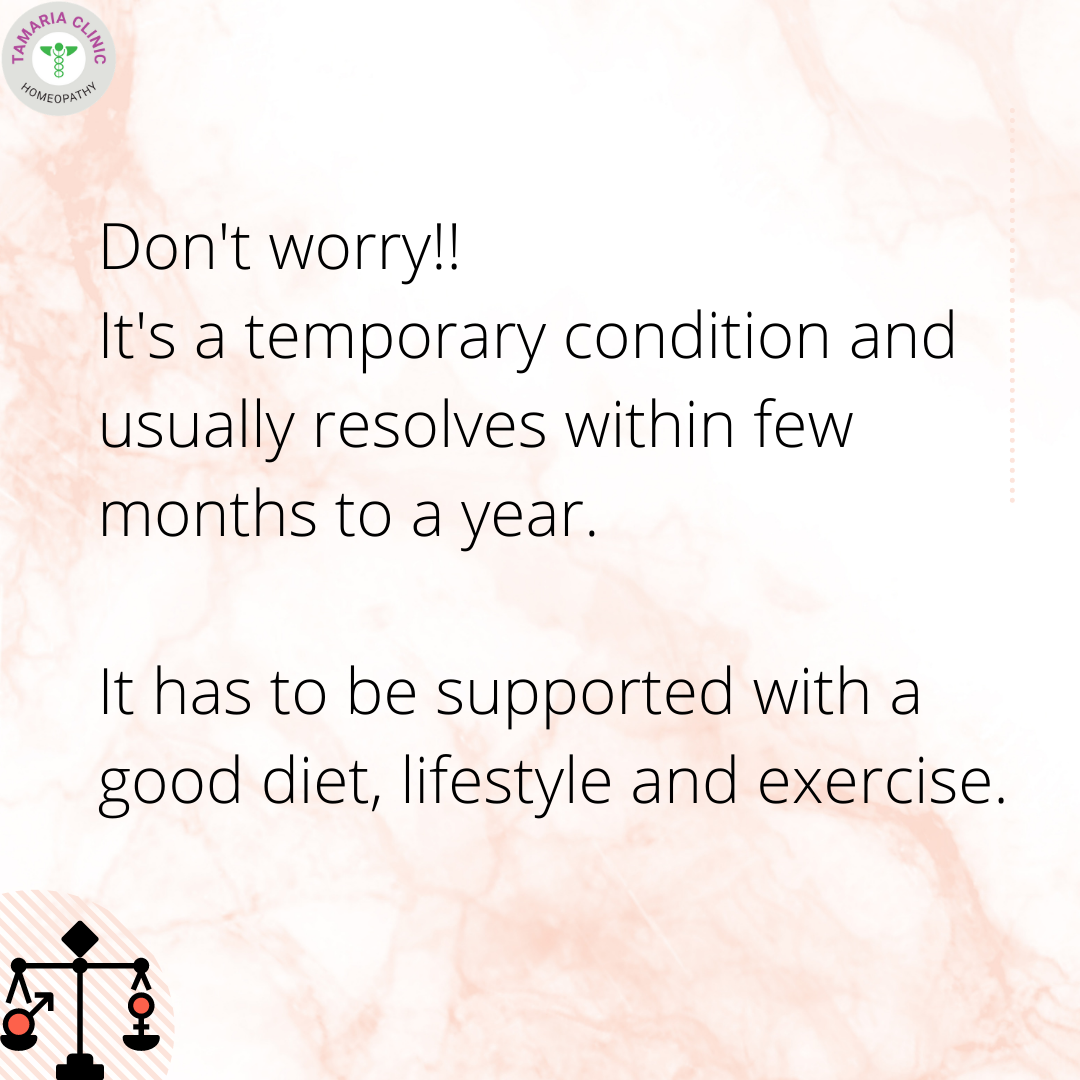
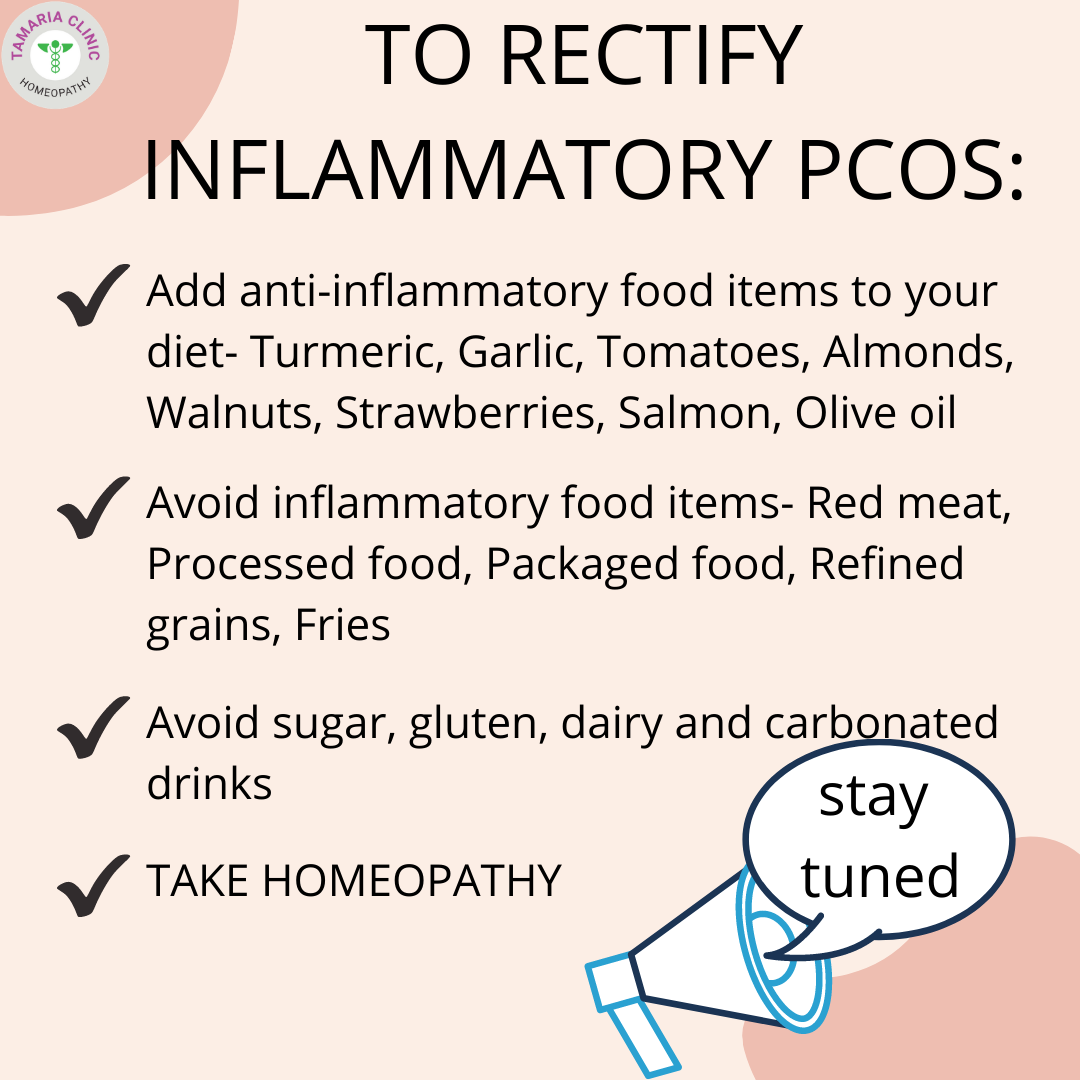
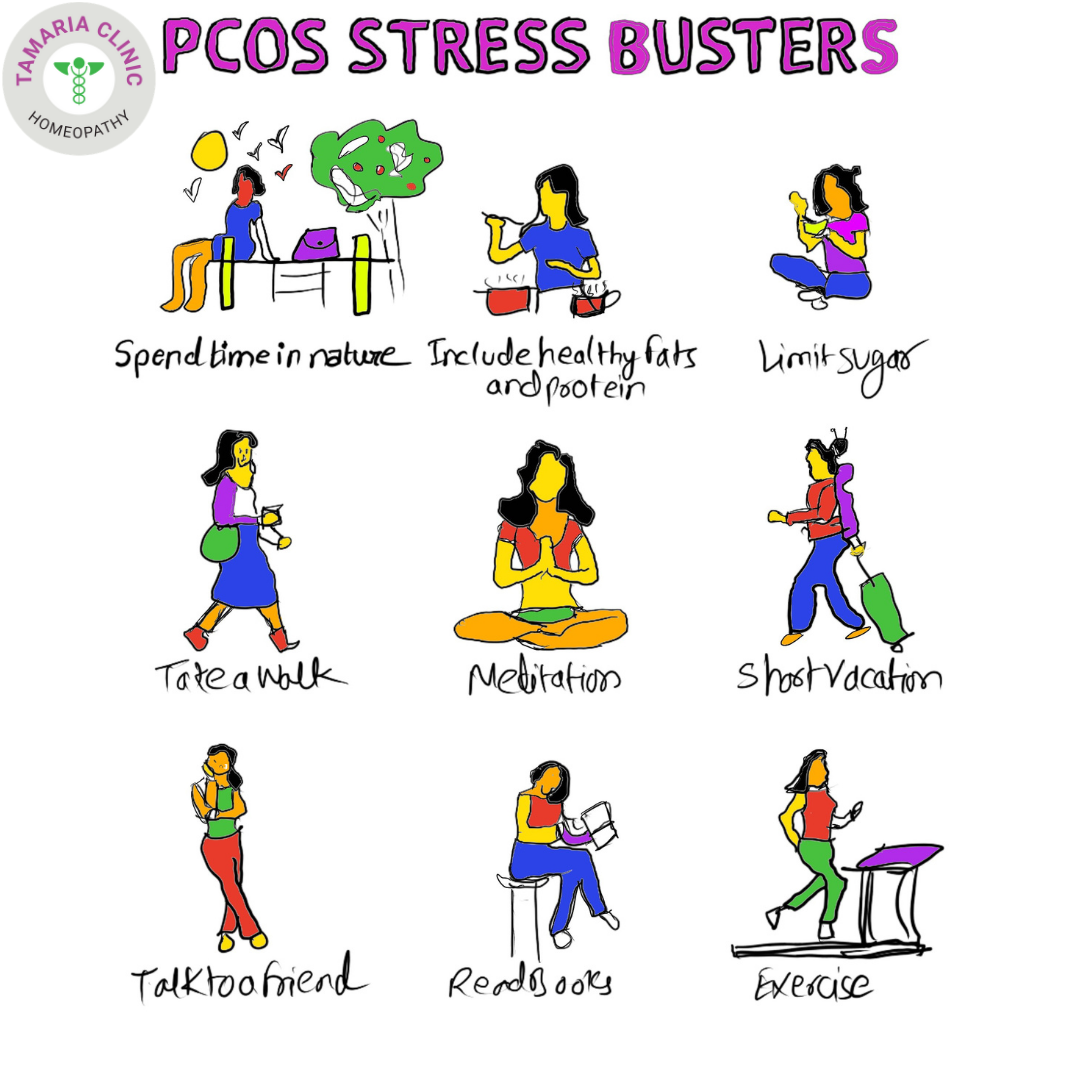
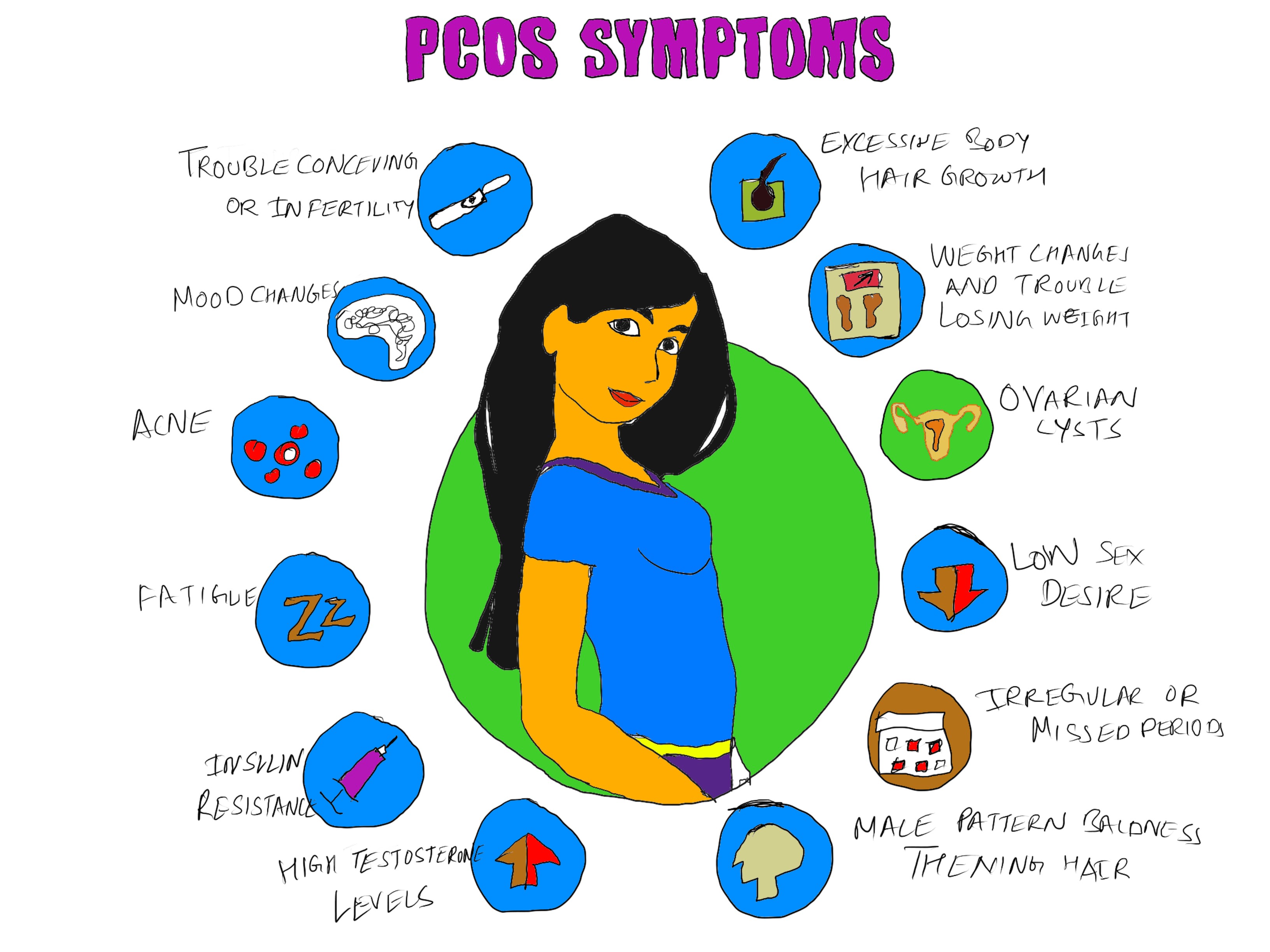
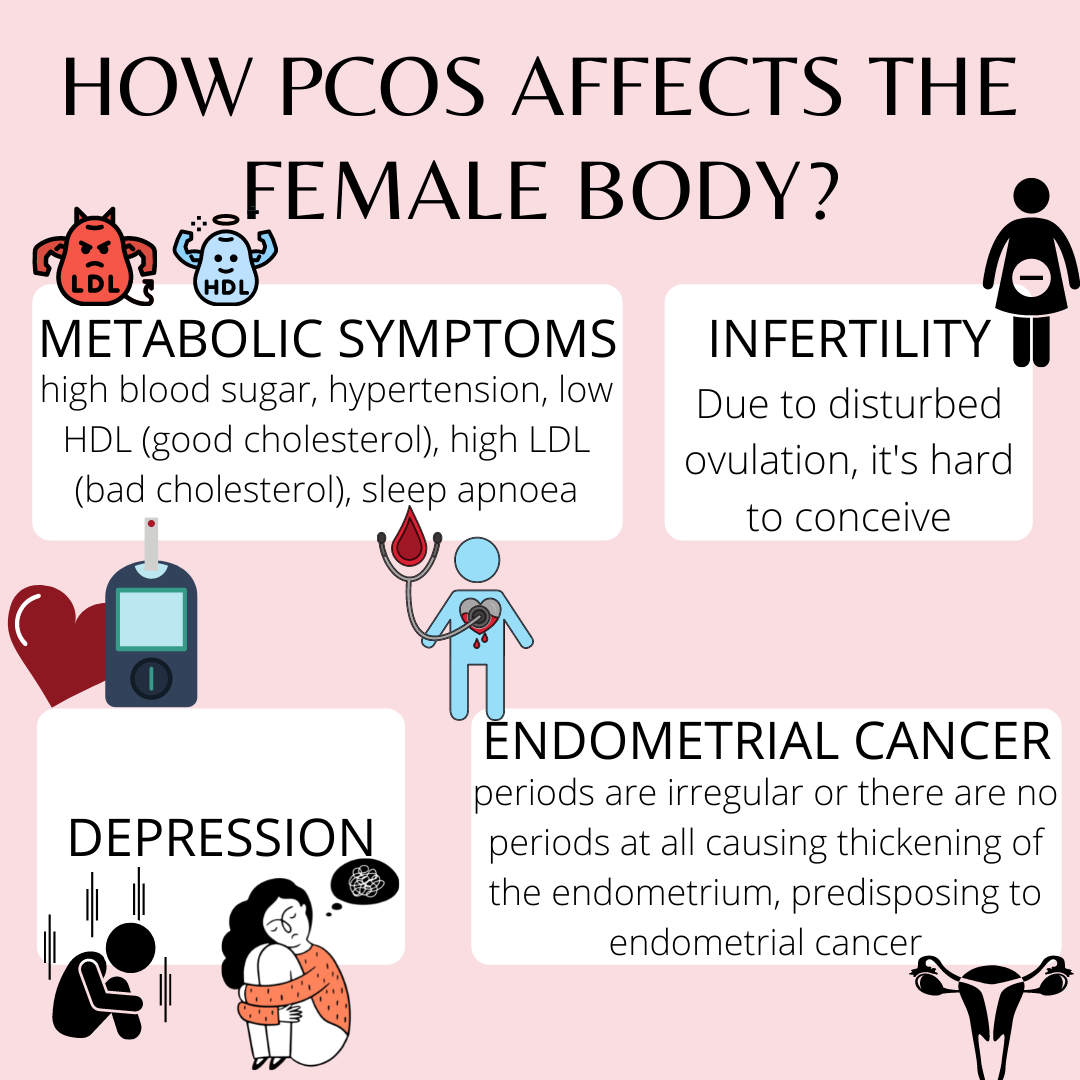
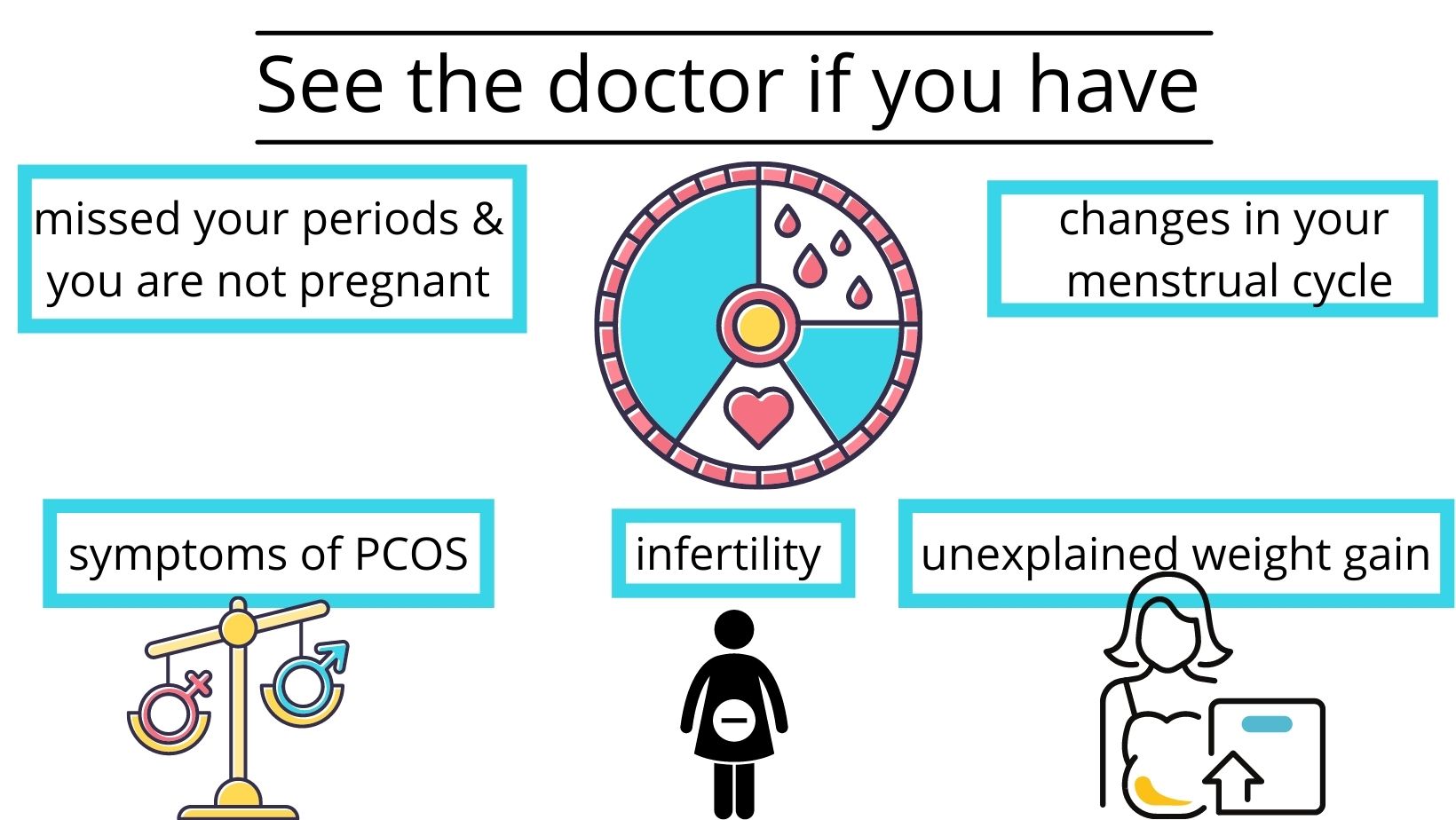
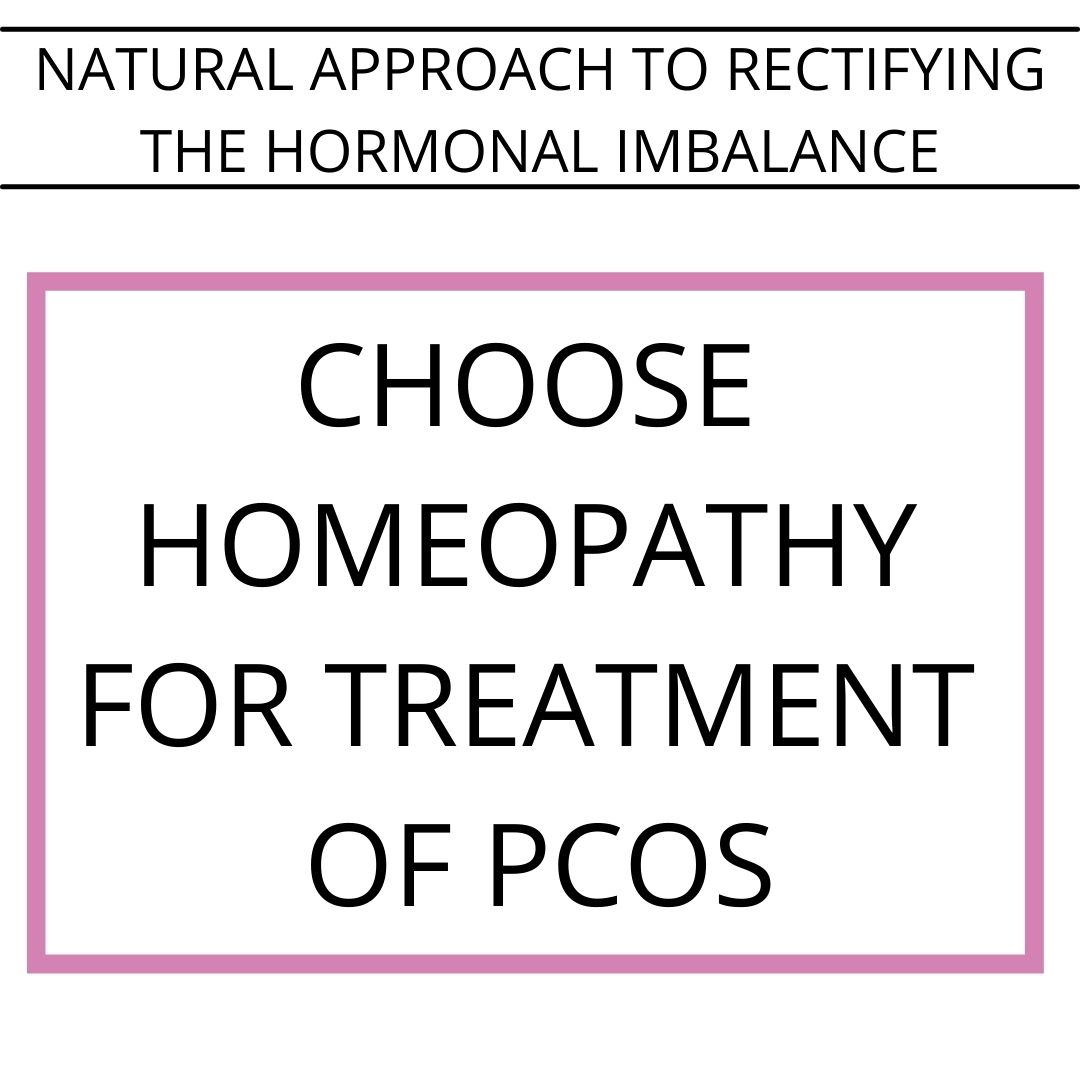
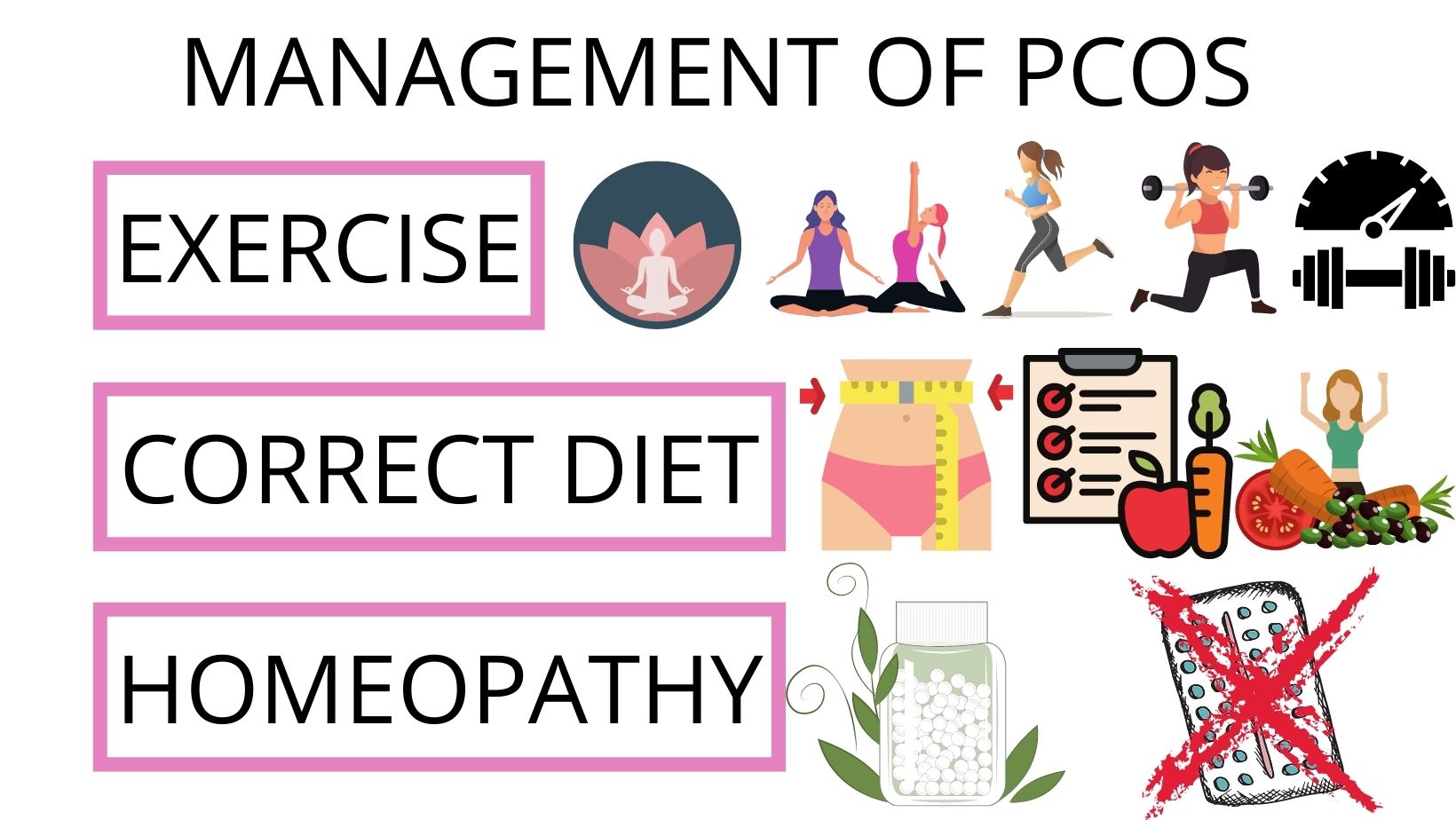
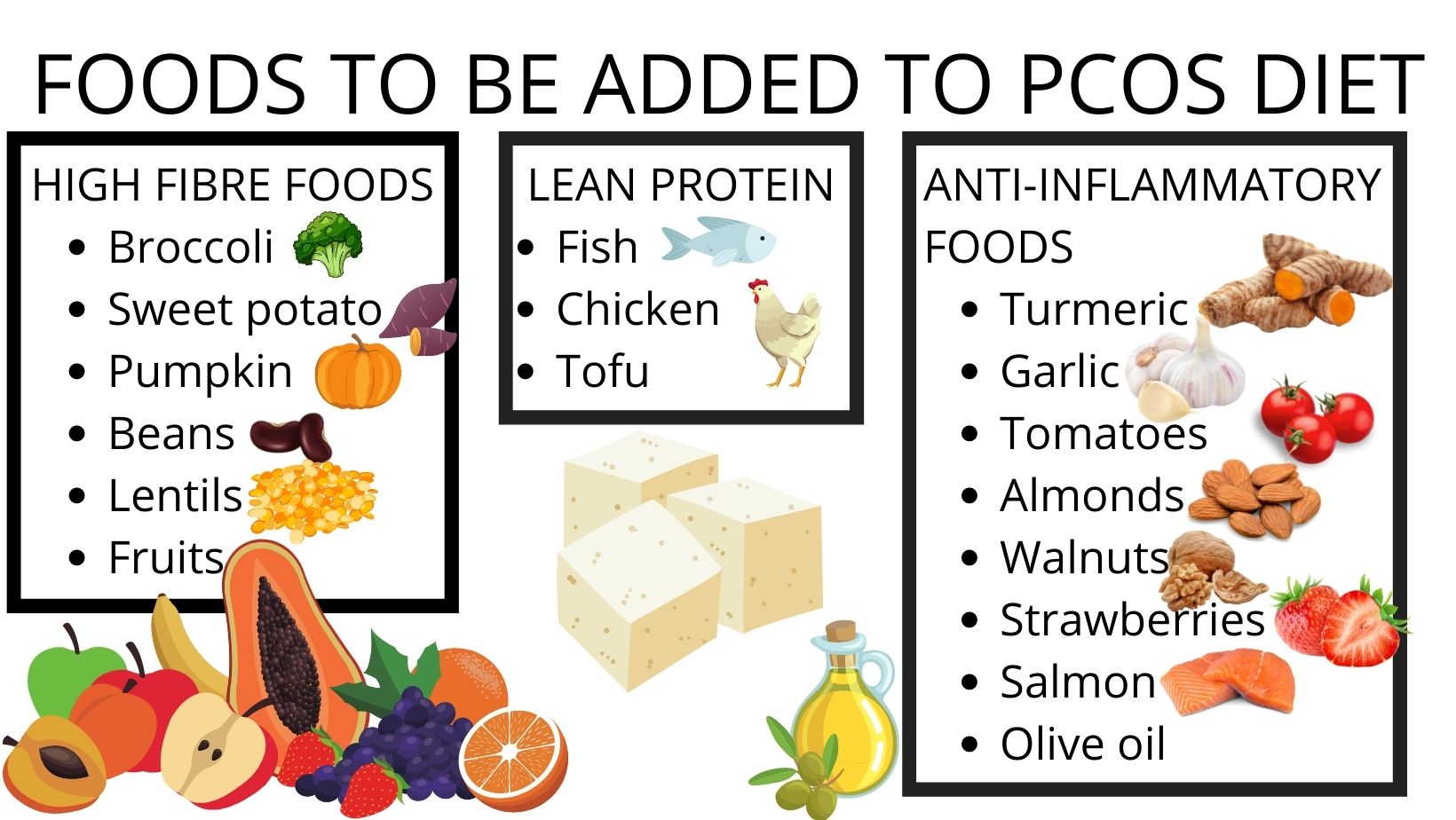
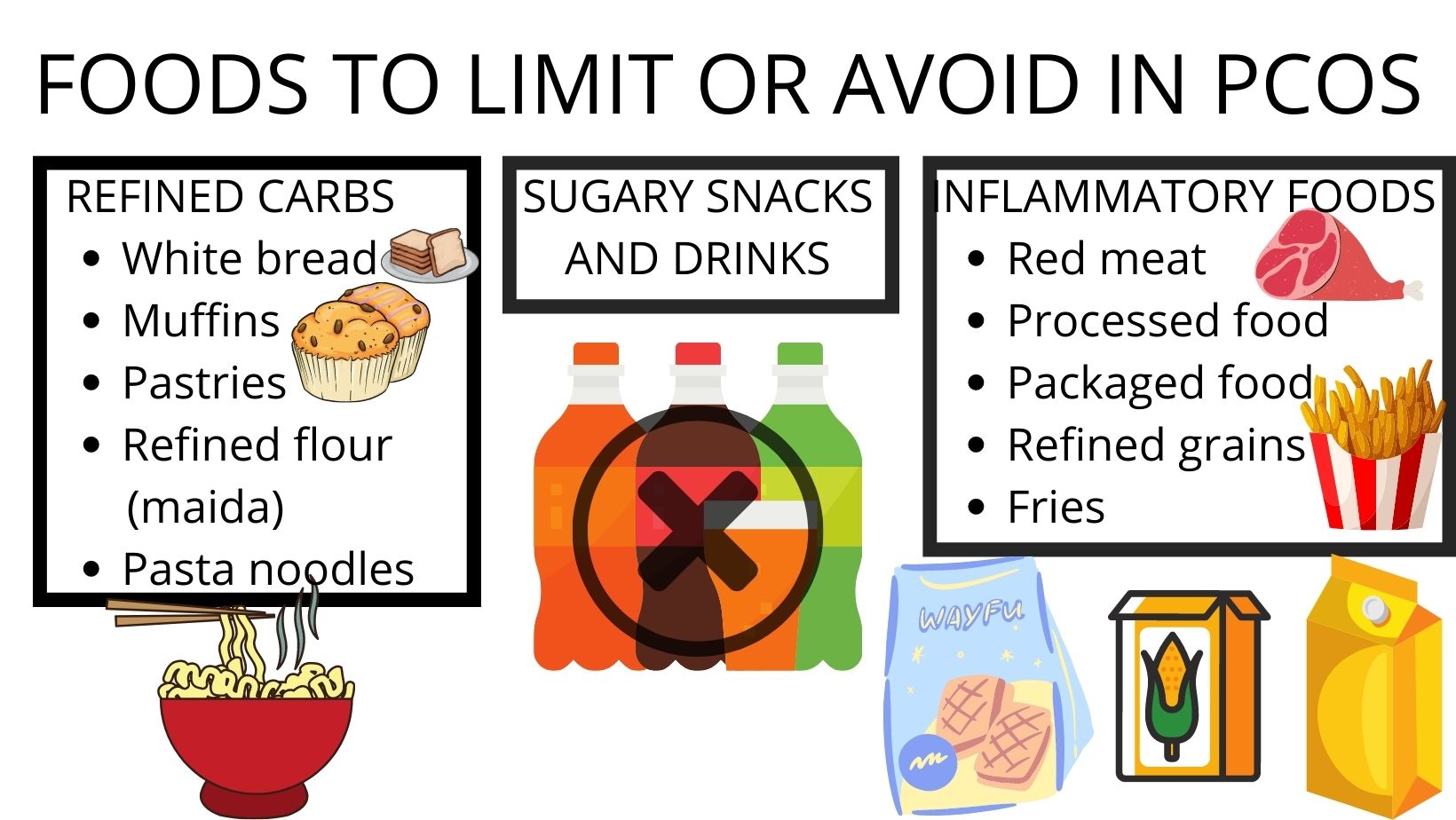
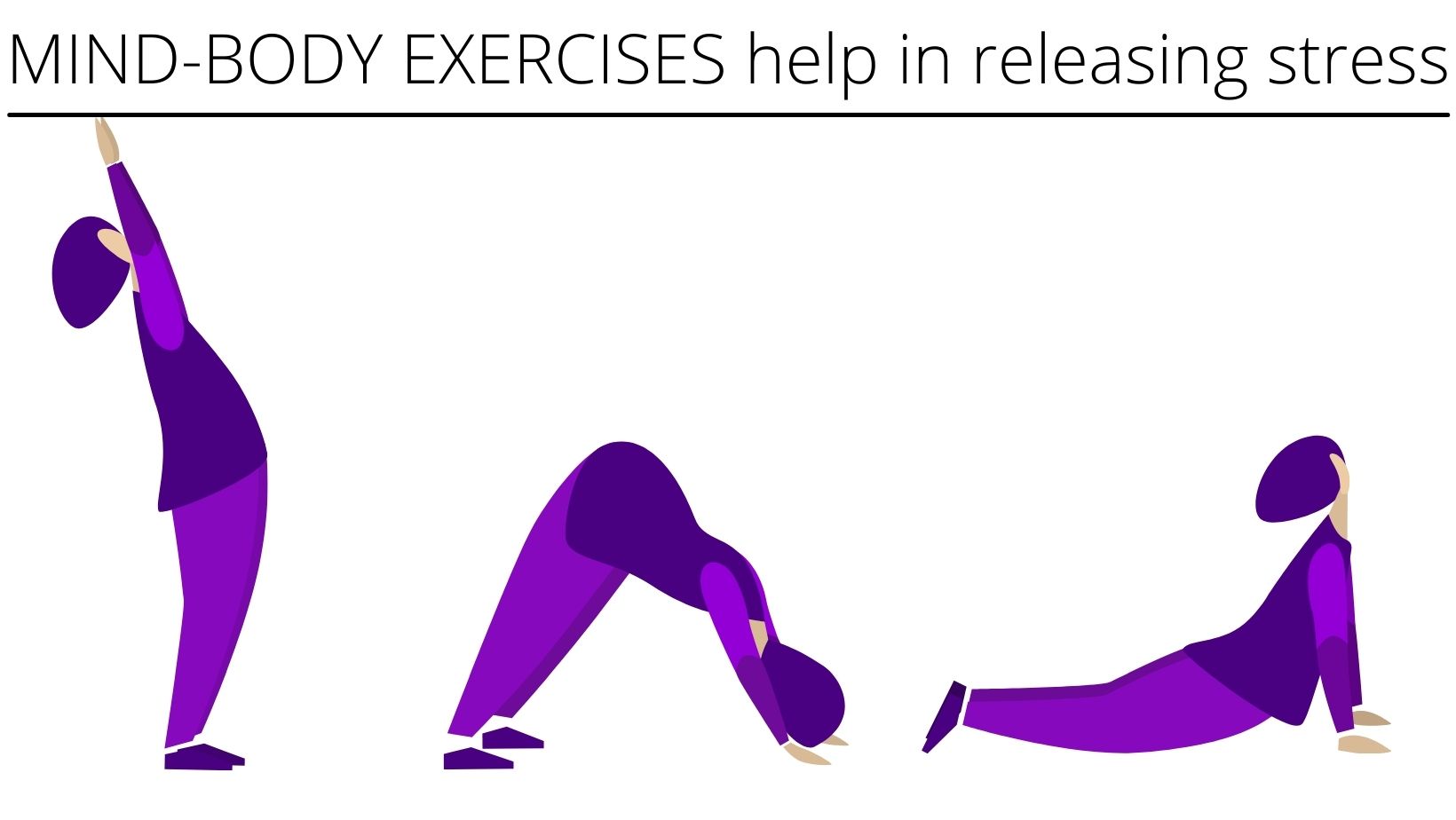
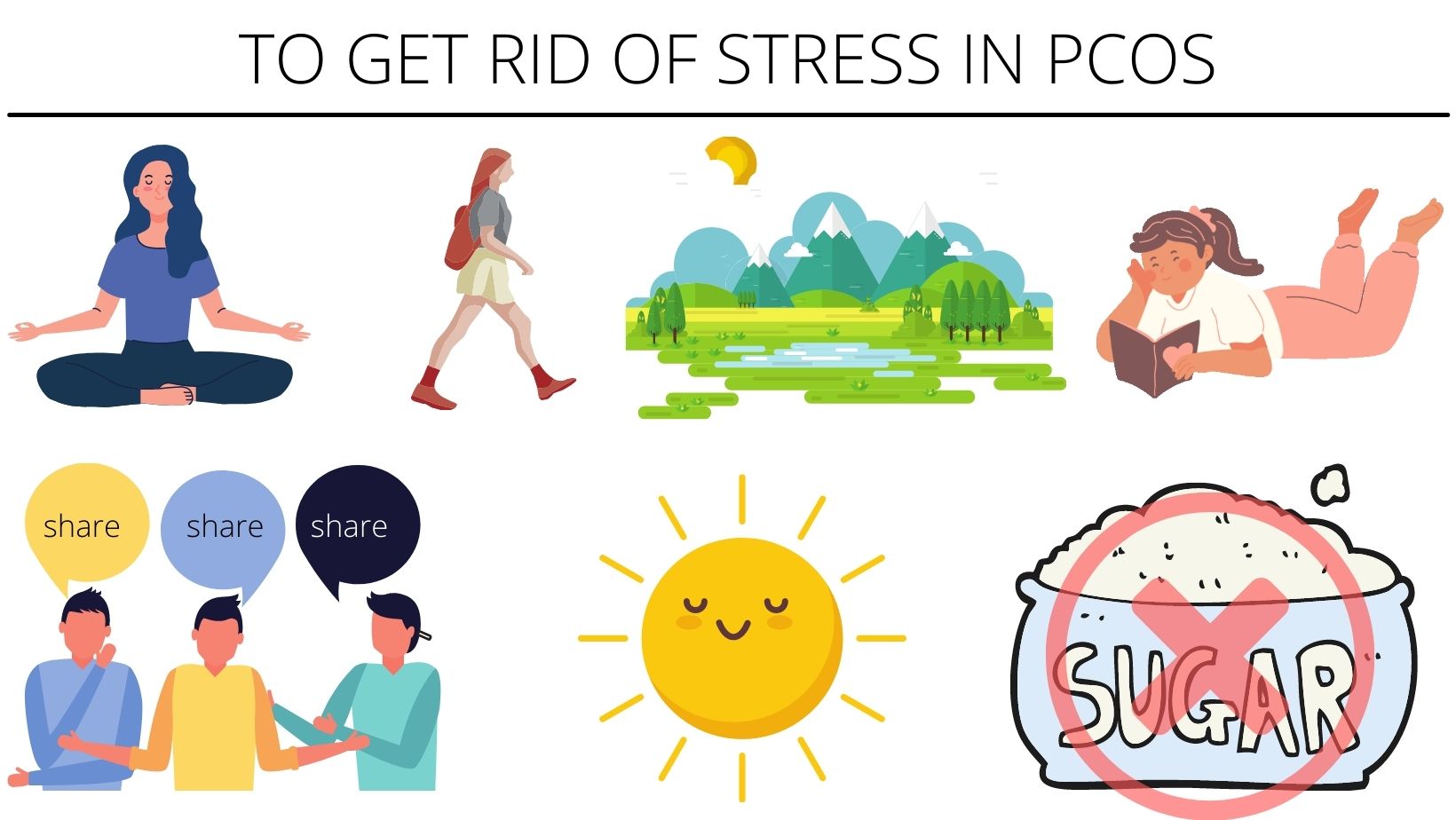
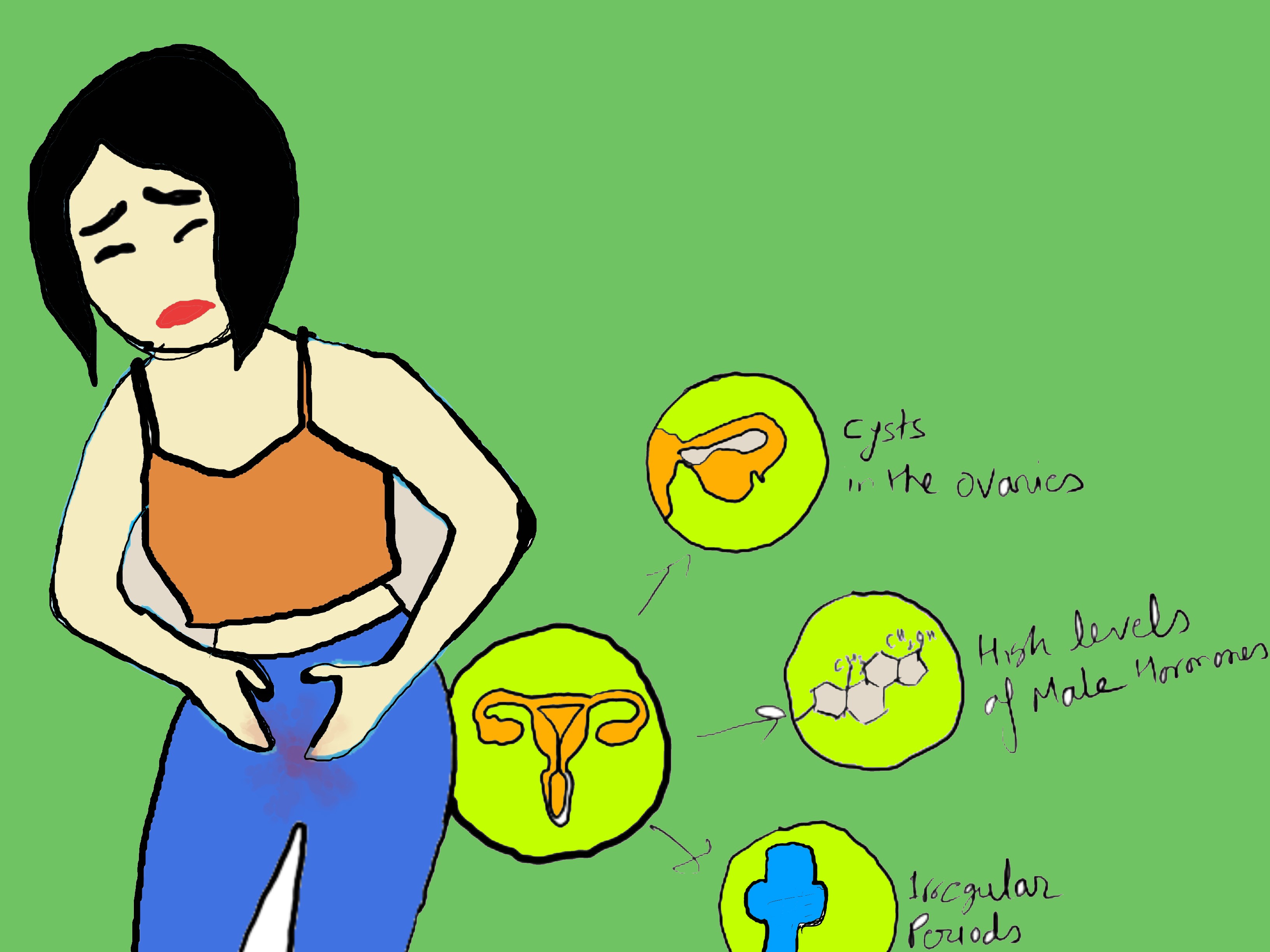
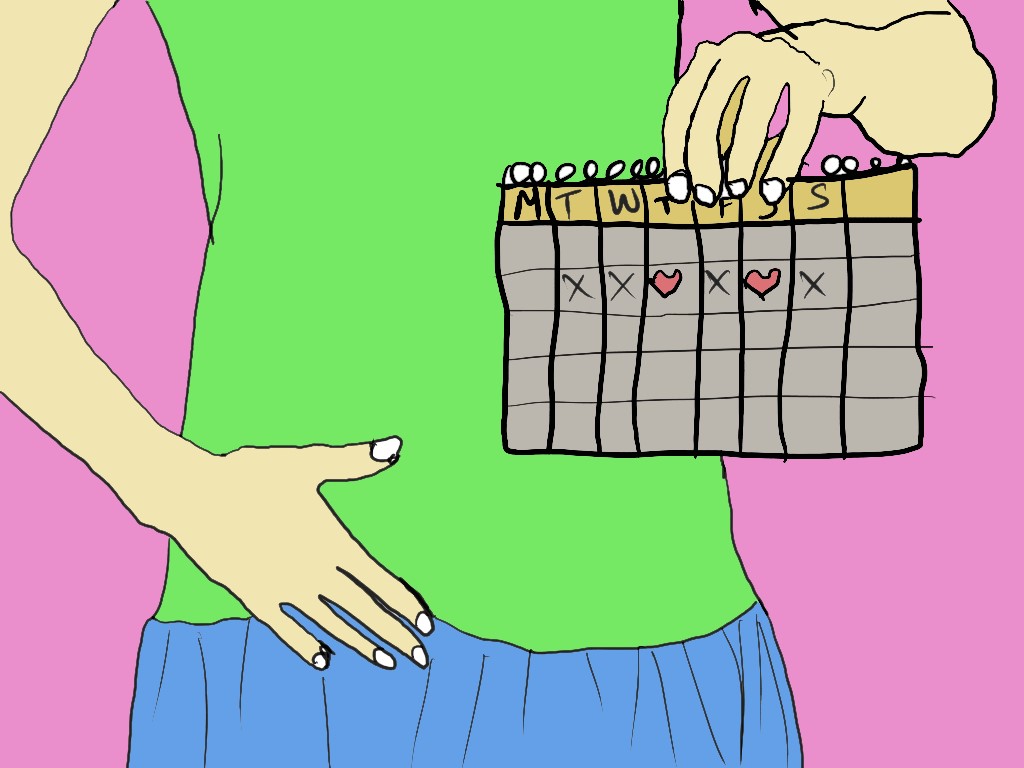

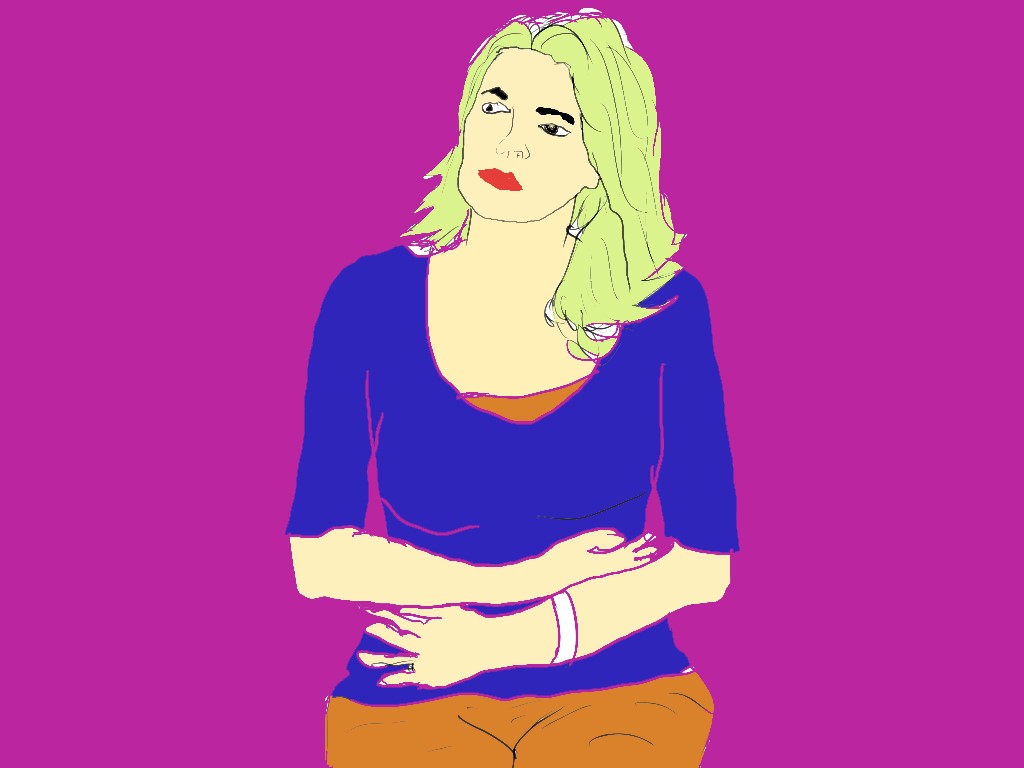
Comments
We have received your comment , Thank You !